Shows

Rare Disease DiscussionsPositive Updated Results from MajesTEC-1 Study in Relapsed/Refractory Multiple MyelomaAjay K. Nooka, MD, Associate Professor of Hematology and Medical Oncology at Emory School of Medicine, discusses the updated efficacy and safety results from the phase 1/2 MajesTEC-1 study evaluating teclistamab in patients with relapsed or refractory multiple myeloma.Multiple myeloma is a rare blood cancer associated with uncontrolled growth of plasma cells. Abnormal plasma cells – also known as myeloma cells – interfere with the production of healthy blood cells in the bone marrow. Symptoms of multiple myeloma may include: bone pain (particularly in the chest and spine), frequent infections, weakness or numbness in the legs, fatigue, confusion, excessive thirst, and...
2023-01-2308 min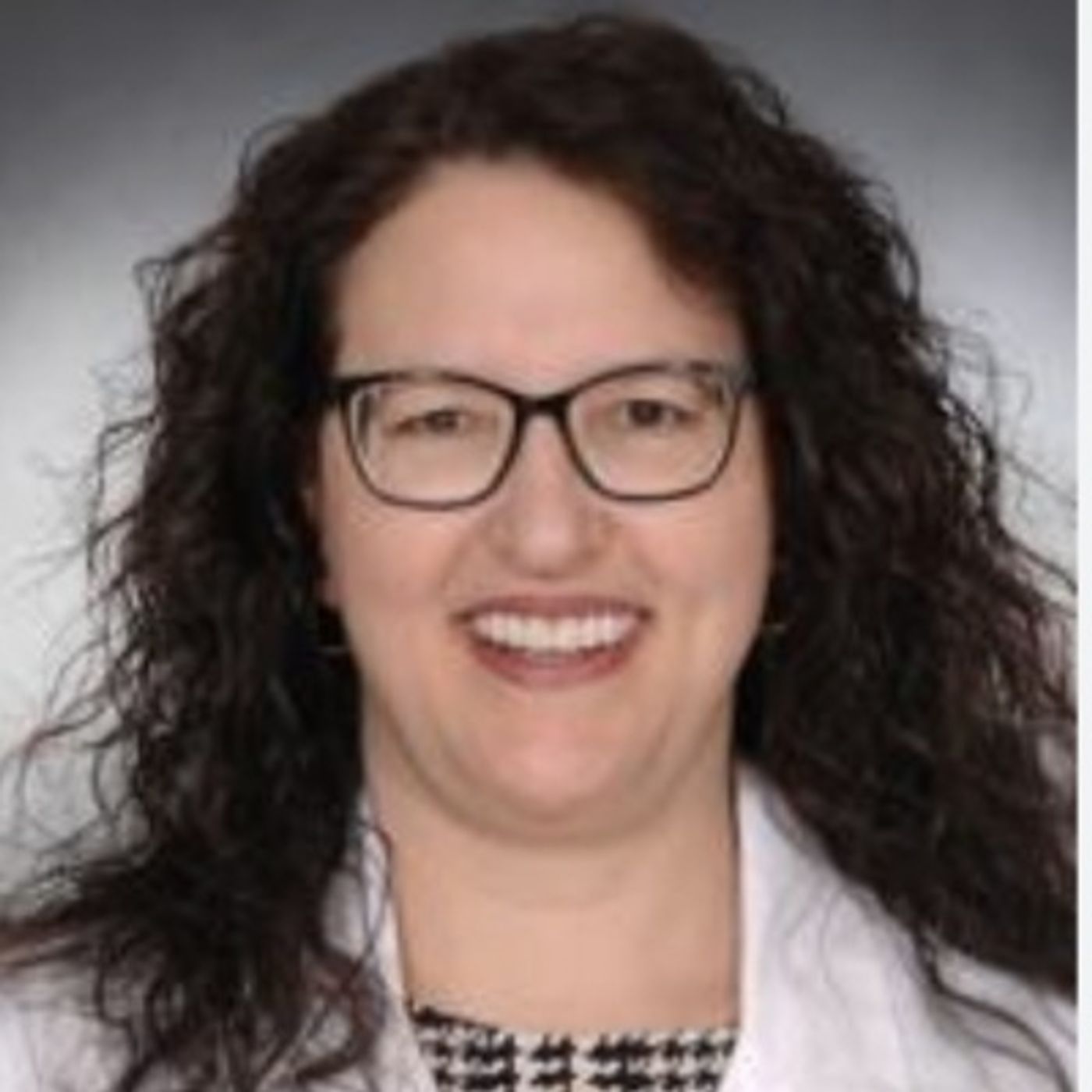
Rare Disease DiscussionsCME: Pulmonary Arterial Hypertension (PAH) Research HighlightsThis CME program highlights the latest clinical research about pulmonary arterial hypertension (PAH). PAH is a rare, progressive disorder characterized by high blood pressure in the pulmonary arteries. Symptoms of PAH include shortness of breath (dyspnea) especially during exercise, chest pain, and fainting episodes. The progressive nature of this disease means that an individual may experience only mild symptoms at first, but will eventually require treatment and medical care to maintain a reasonable quality of life. There are numerous treatment options and options in development for persons with PAH and it is imperative clinicians who manage these patients...
2023-01-1528 min
Rare Disease DiscussionsDr. Farber: The Impact of COVID-19 in the Diagnosis of Pulmonary Arterial Hypertension (PAH)Dr. Harrison Farber, a pulmonologist and director of the Pulmonary Embolism Response Team at Tufts Medical Center discusses a chronic rare disease that affects the circulatory system in the lungs and directly affects the ability of the lungs to function.Pulmonary Arterial Hypertension, or PAH, is characterized by shortness of breath, dizziness, and chest pressure. Dr. Harrison Farber joins us to discuss the impact of COVID-19 on PAH patient care.
2023-01-1305 min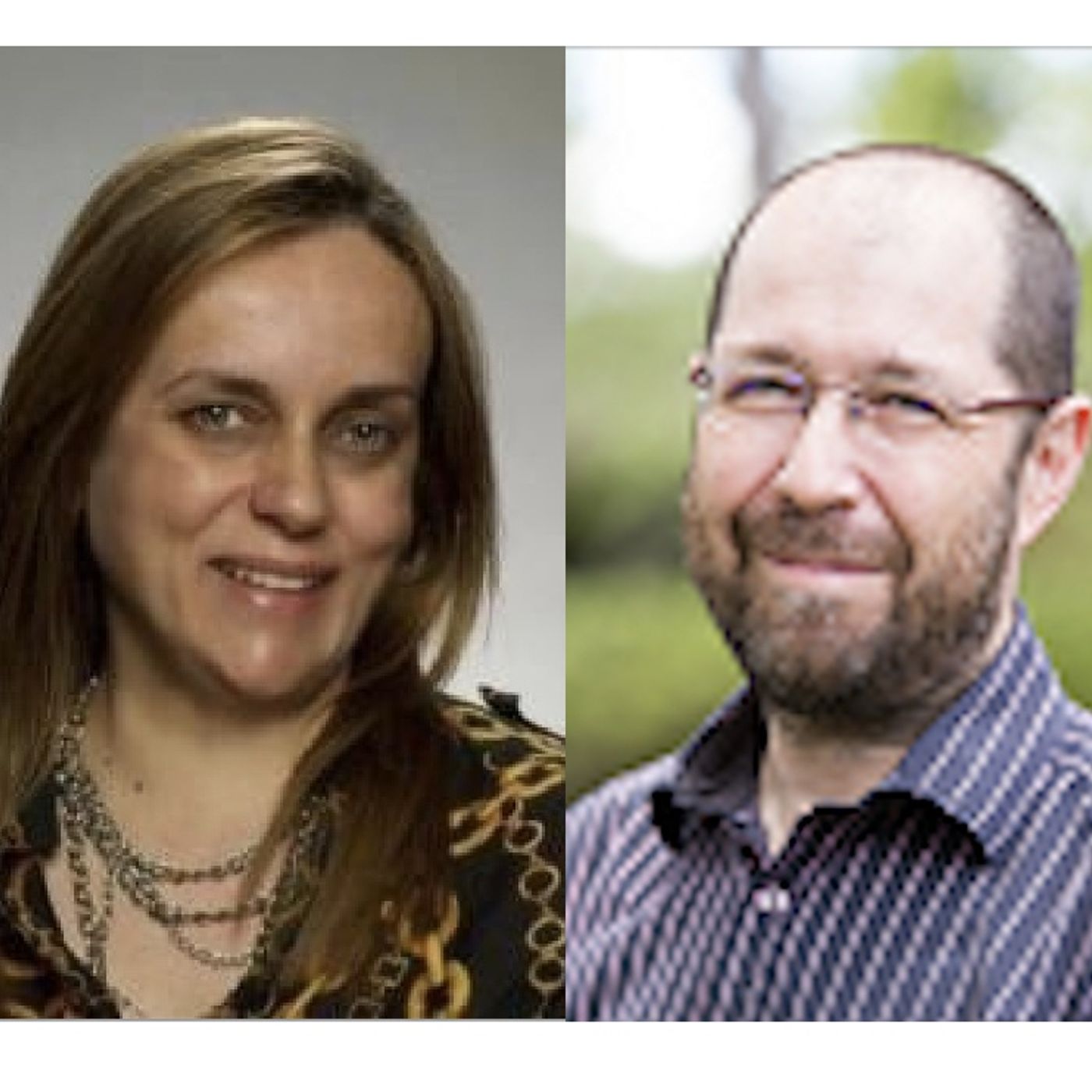
Rare Disease DiscussionsCME: The Immune System and Lysosomal DiseasesThis CME/CE activity, hosted by Ozlem Goker-Alpan, MD, Co-founder and President Lysosomal & Rare Disorders Research & Treatment Center (LDRTC) and guest lecturer, Oral Alpan, MD, of Amerimmune in McLean, VA, provides an overview of our current understanding of the immune system in the pathophysiology and management of lysosomal disorders. At the end of this activity, participants should be able to: Describe how the immune system is involved in Lysosomal Storage Disorders.Review the pathophysiology of immune response reactions. Describe how to better manage patients with immune response reactions.Describe the best clinical practices to monitor the patients with...
2022-12-2948 min
Rare Disease DiscussionsGrowth Hormone Deficiency Research HighlightsThis 15-minute CME program highlights the latest clinical research about Growth Hormone Deficiency (GHD) and is hosted by a leading expert in GHD, Paul Saenger, of the Albert Einstein College of Medicine.GHD is a rare endocrine disorder characterized by insufficient levels of growth hormone being secreted from the anterior pituitary gland. A hallmark of prolonged GHD is growth retardation or deceleration, as well as short stature. Additionally, growth hormone deficiency is associated with metabolic abnormalities, impaired cardiovascular function, fatigue, delayed or incomplete puberty, osteoporosis, and reduced muscle strength. Given the varied clinical profile of these patients, GHD...
2022-12-1419 min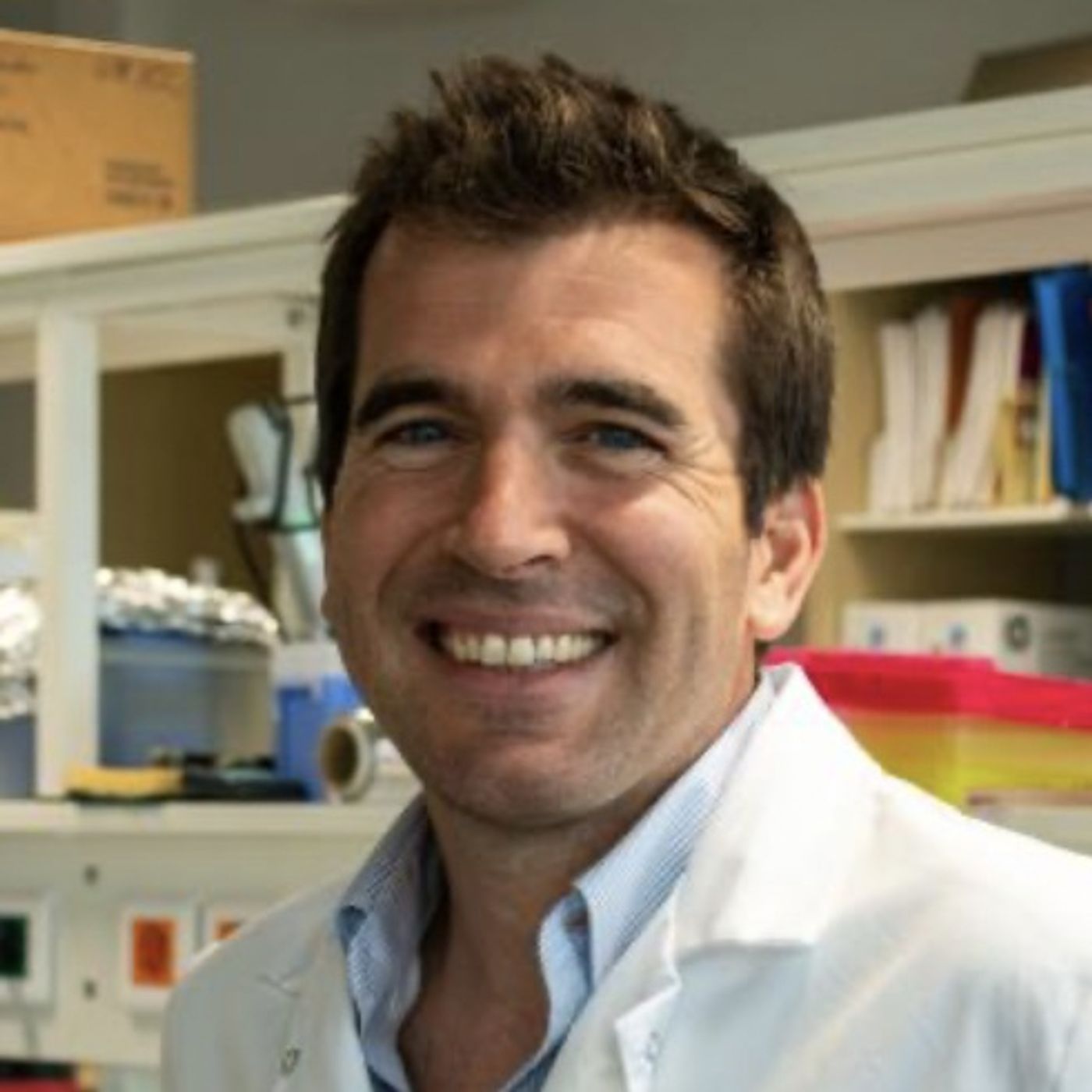
Rare Disease DiscussionsPIK3CA-Related Overgrowth Syndrome (PROS)Guillaume Canaud, MD, PhD, of the Paris Descartes University, explains why it is important to regularly measure objective outcomes in persons with PiK3CA-related overgrowth syndrome (PROS).PROS is a group of rare congenital disorders that lead to the overgrowth of parts of the body. PROS is caused by gain of function mutations in the PIK3CA gene. Specific disorders under the umbrella of PROS include fibroadipose hyperplasia, hemihyperplasia multiple lipomatosis (HHML), CLOVES syndrome, macrodactyly, fibroadipose infiltrating lipomatosis, megalencephaly-capillary malformation (MCAP), and dysplastic megalencephaly (DMEG).
2022-12-1410 min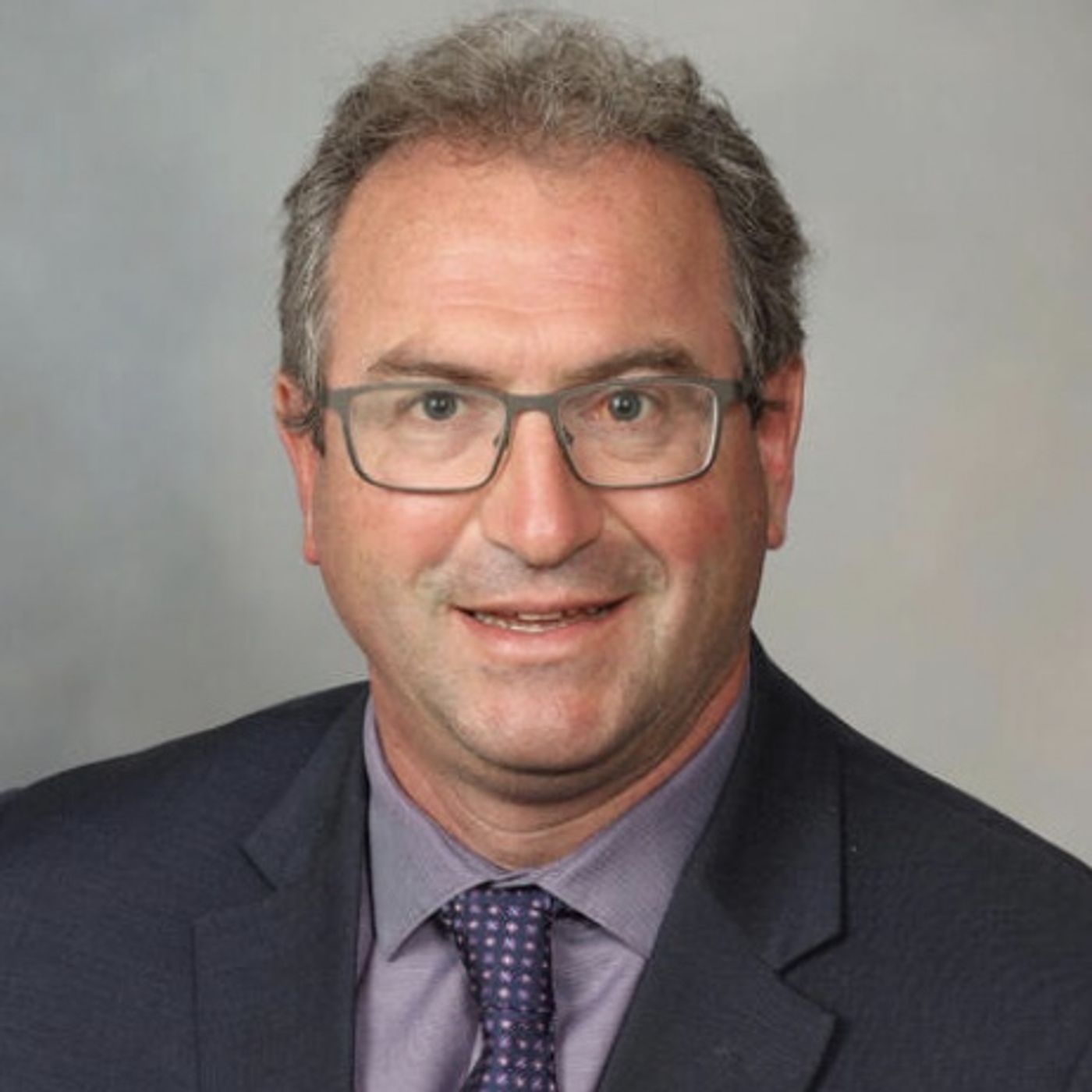
Rare Disease DiscussionsZero Relapses in Patients With NMOSD Given RavulizumabSean J. Pittock, MD, Director of Mayo Clinic's Center for Multiple Sclerosis and Autoimmune Neurology and of Mayo's Neuroimmunology Laboratory discusses the latest results from Phase III CHAMPION-NMOSD trial recently presented at European Committee for Treatment and Research in Multiple Sclerosis (ECTRIMS) Congress. The results showed that treatment with ravulizumab-cwvz significantly reduced relapse risk in adults with anti-aquaporin-4 (AQP4) antibody-positive (Ab+) neuromyelitis optica spectrum disorder (NMOSD).NMOSD is a rare central nervous disorder that primarily affects the spinal cord and optic nerves. Symptoms of NMOSD may include blindness in one or both eyes, weakness or paralysis of arms...
2022-11-2806 min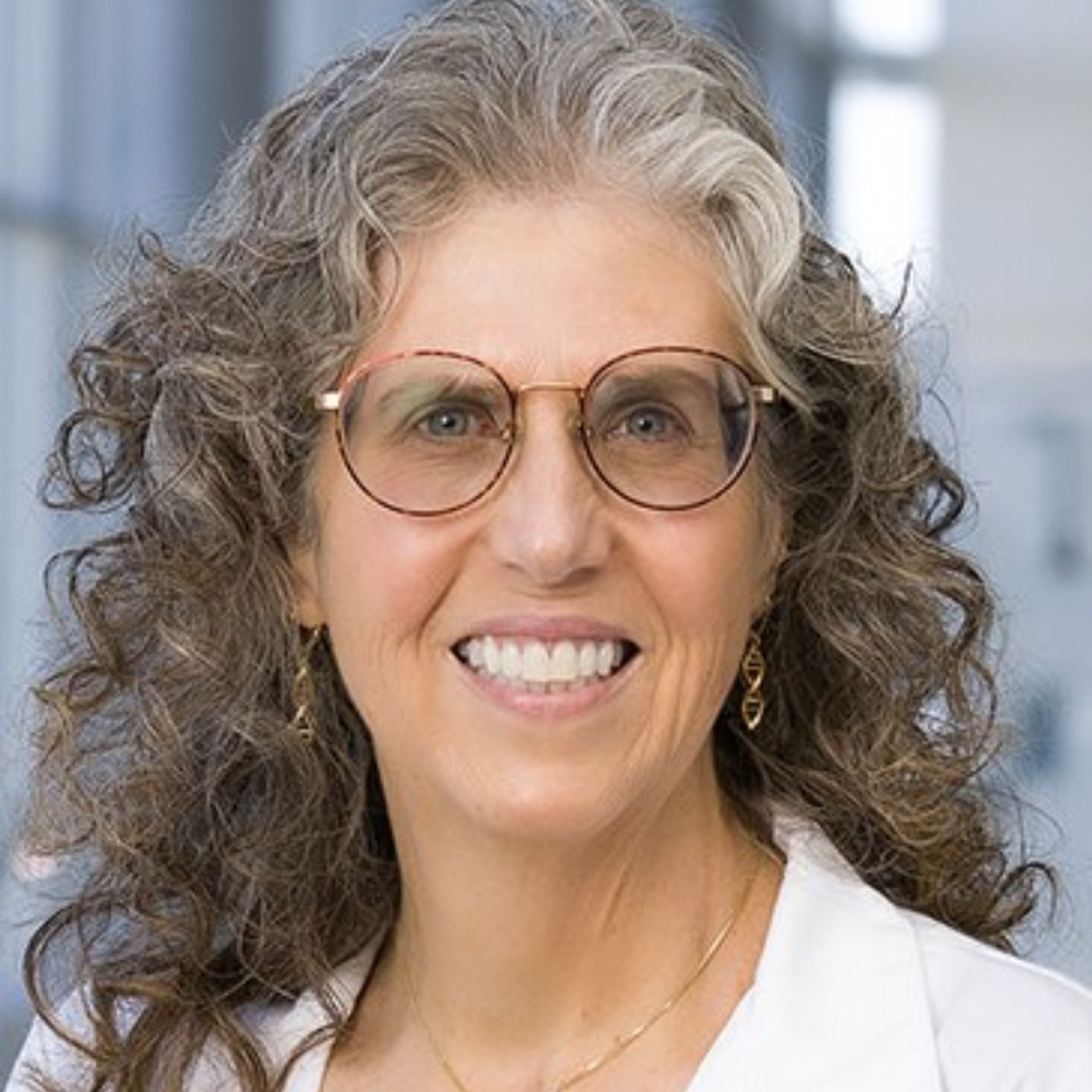
Rare Disease DiscussionsUT Southwestern Medical Center: a NORD Center of ExcellenceAngela Scheuerle, MD, Medical Geneticist at the UT Southwestern Medical Center, discusses National Organization for Rare Disorders’ (NORD) Rare Disease Centers of Excellence of which UT Southwestern is one.There are currently 31 NORD Rare Disease Centers of Excellence across the United States. The primary goal for establishing this network was to advance care and expand access for rare disease patients. The second goal was to enable rare disease experts to work collaboratively, which will hopefully lead to faster progress in terms of diagnoses, treatments, and development of guidelines and new therapies. Many of the Centers of Ex...
2022-11-1603 min
Rare Disease DiscussionsAdvances in Gene Therapy for Lysosomal DiseasesThis CME/CE activity, hosted by Ozlem Goker-Alpan, MD, Co-founder and President Lysosomal & Rare Disorders Research & Treatment Center (LDRTC) and Sonata Jodele, MD, Research Professor of Pediatrics at Cincinnati Children’s Hospital Medical Center, highlights the current trends in gene therapy for lysosomal storage diseases as well as some of the safety concerns with such therapy. At the end of this activity, participants should be able to: Describe the limitations and unmet needs of the current therapeutic landscape for lysosomal disorders Review the gene transfer therapies for lysosomal disorders Describe the best clinical practices to mo...
2022-11-071h 01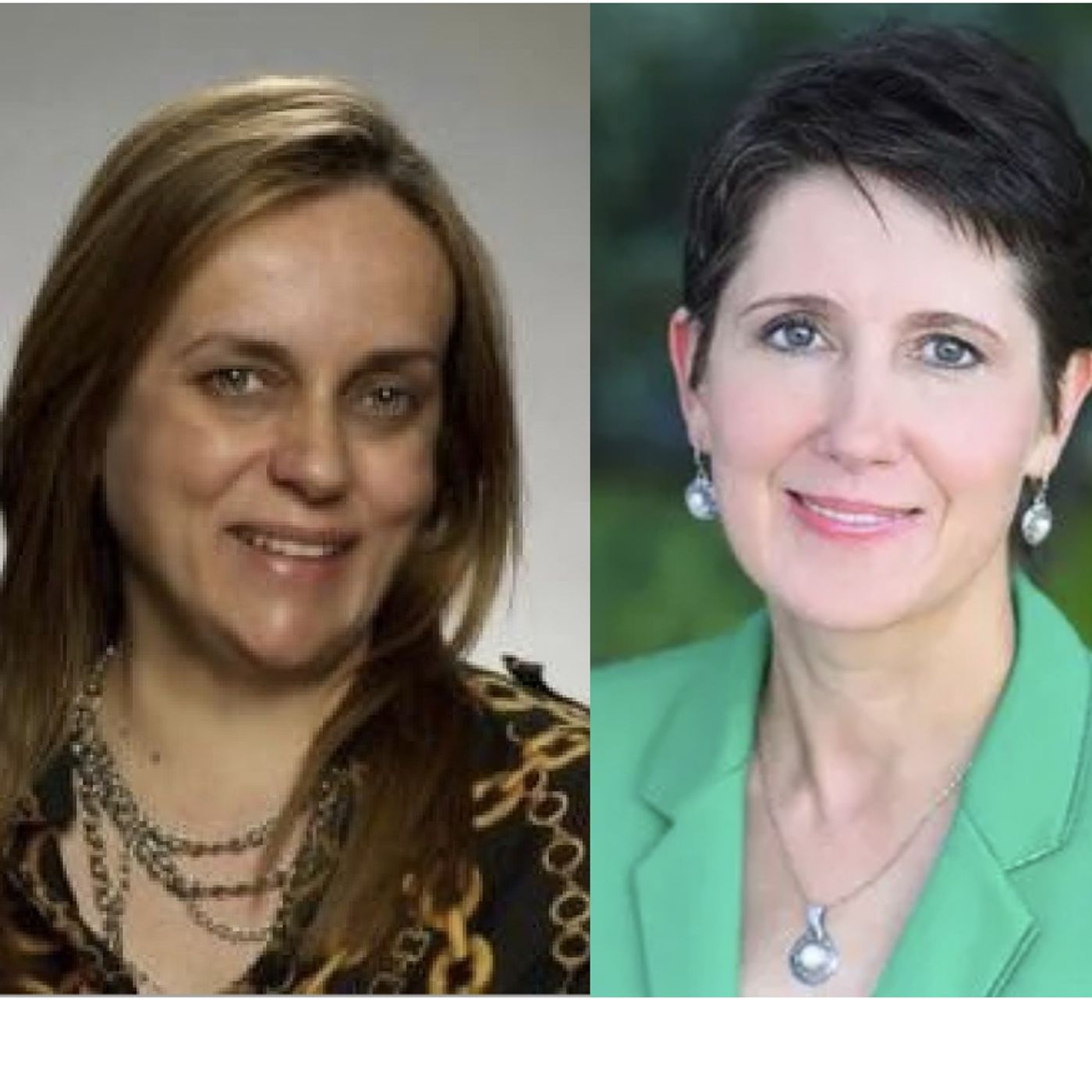
Rare Disease DiscussionsAdvances in Gene Therapy for Lysosomal DiseasesThis CME/CE activity, hosted by Ozlem Goker-Alpan, MD, Co-founder and President Lysosomal & Rare Disorders Research & Treatment Center (LDRTC) and Sonata Jodele, MD, Research Professor of Pediatrics at Cincinnati Children’s Hospital Medical Center, highlights the current trends in gene therapy for lysosomal storage diseases as well as some of the safety concerns with such therapy. At the end of this activity, participants should be able to: Describe the limitations and unmet needs of the current therapeutic landscape for lysosomal disorders: - Review the gene transfer therapies for lysosomal disorders - Describe the best clinical pr...
2022-11-021h 02
Rare Disease DiscussionsUpdates in Medical Management of Cushing’s SyndromeThis 30-minute CME program highlights new treatment options that are available for persons with Cushing’s disease. Cushing’s disease is caused by an adrenocorticotropic hormone (ACTH)-secreting pituitary tumor. Optimal patient outcomes require an accurate diagnosis, proper selection of individualized treatment, and good management of the disease and its associated comorbidities.The program features two experts, Maria Fleseriu, MD, Professor of Medicine and Neurological Surgery at Oregon Health and Science University and Beverly Biller, MD, Professor of Medicine at Harvard Medical School, who were actively involved in the recently published consensus on the diagnosis and mana...
2022-09-2832 min
Rare Disease DiscussionsDiagnosis and Comorbidities in Cushing’s Disease: New Consensus Summary Into Your PracticeThis 30-minute CME program highlights best practices to diagnose Cushing’s disease and to manage the comorbidities commonly observed in persons with this rare disorder. Cushing’s disease is caused by an adrenocorticotropic hormone (ACTH)-secreting pituitary tumor. Optimal patient outcomes require an accurate diagnosis, proper selection of individualized treatment, and good management of the disease and its associated comorbidities.The program features two experts, Beverly Biller, MD, Professor of Medicine at Harvard Medical School and Maria Fleseriu, MD, Professor of Medicine and Neurological Surgery at Oregon Health and Science University, who were actively involved in the rece...
2022-09-2835 min
Rare Disease DiscussionsCurrent and Emerging ERTs/SRTsThis CME/CE activity, hosted by Ozlem Goker-Alpan, MD, Co-founder and PresidentLysosomal & Rare Disorders Research & Treatment Center (LDRTC) and Neal J Weinreb, MD, FACP, Voluntary Associate Professor of Human Genetics, University of Miami Miller School of Medicine, highlights how enzyme replacement therapies (ERTs) and substrate reduction therapies (SRTs) for lysosomal storage disorders have transformed, and will continue to transform, the treatment landscape for these rare conditions.At the end of this activity, participants should be able to:• Describe how ERTs/SRTs have transformed the LSD population• Describe the new research underway to improve safety and...
2022-09-261h 02
Rare Disease DiscussionsWhat is Dravet Syndrome?Barry S. Ticho, MD, PhD, Chief Medical Officer at Stoke Therapeutics, gives a detailed overview of Dravet syndrome.As Dr. Ticho explains, Dravet syndrome is a rare neurological condition that usually appears during the first year of life as frequent febrile seizures. As the condition progresses, other types of seizures typically occur, including myoclonus and status epilepticus. Moderate to severe cognitive impairment is also common. Most cases of Dravet syndrome occur due to a mutation of the SCN1A gene. The SCN1A gene codes for the protein NaV1.1. With only one functional SCN1A gene, people with...
2022-09-0705 min
Rare Disease DiscussionsWhat Is a Patient-Focused Drug Development (PFDD) Meeting?Larry J Bauer, Senior Regulatory Drug Expert from Hyman, Phelps, & McNamara PC, a dedicated food and drug law firm, discusses the history and purposes of patient-focused drug development (PFDD) meetings.As Mr. Bauer explains, PFDD meetings are designed to engage patients and learn their perspectives on the most significant symptoms of their condition and the impact of the condition on daily life, as well as their current approaches to treatment.
2022-08-3007 min
Rare Disease DiscussionsData From SHINE Study Shows Significant Breakthrough for Patients with Mantle Cell LymphomaMichael L. Wang, MD, Professor, Department of Lymphoma & Myeloma at the University of Texas MD Anderson Cancer Center, discusses results of the phase 3 SHINE study which evaluated the safety and efficacy of ibrutinib in combination with bendamustine and rituximab in patients 65 years of age or older with newly diagnosed mantle cell lymphoma. These data were recently presented at the American Society of Clinical Oncology (ASCO) 2022 Annual Meeting and were published in The New England Journal of Medicine.Mantle cell lymphoma is a rare form of non-Hodgkin’s lymphoma in which B-cells become cancerous and form tumors in the ly...
2022-08-1203 min
Rare Disease DiscussionsWhat Is ENPP1 Deficiency?Axel Bolte, MSc, MBA, Co-Founder, President, and Chief Executive Officer, Inozyme Pharmaceuticals, gives an overview of ENPP1 deficiency.The ENPP1 gene produces a critical enzyme called ectonucleotide pyrophosphatase/ phosphodiesterase 1 (ENPP1), which regulates inorganic pyrophosphate (PPi) levels in plasma. PPi is essential for preventing harmful soft tissue calcification and for regulating normal bone mineralization. Individuals who present in utero or in infancy are typically diagnosed with generalized arterial calcification of infancy (GACI), which is characterized by extensive vascular calcification and neointimal proliferation, resulting in myocardial infarction, stroke, or cardiac or multiorgan failure. Approximately 45% to 50% of infants with...
2022-07-2710 min
Rare Disease DiscussionsPNH: Real-World ExperienceThis accredited CME activity, led by Satheesh Chonat, MD, Assistant Professor at Emory University School of Medicine and hematologist-oncologist at the Pediatric Hematology Aflac Cancer and Blood Disorders Center, Children’s Healthcare of Atlanta, highlights the latest real world data focused on paroxysmal nocturnal hemoglobinuria (PNH). Dr Chonat also provides expert analysis of the data’s clinical relevance for members of the care team to help them manage patients with PNH they may encounter with this rare condition. PNH is a rare, acquired blood disease characterized by hemolytic anemia, bone marrow failure, thrombosis, and fatigue. Supported by an educ...
2022-07-1217 min
Rare Disease DiscussionsRare Diseases Cost Ten Times More Than Common DiseasesGiacomo Chiesi, MBA, Head of Chiesi Global Rare Diseases, discusses a white paper titled, "The Burden of Rare Diseases: An Economic Evaluation," based on the results of a study which demonstrate that rare diseases impose substantial economic burden which can be reduced with availability of approved treatments.As Mr. Chiesi explains, the goals of the study were to qualify the macroeconomic societal costs of rare diseases, and whether this cost is affected by a rare disease having an available treatment. The results of the study indicate that for the 24 rare diseases selected, the total cost to...
2022-07-0516 min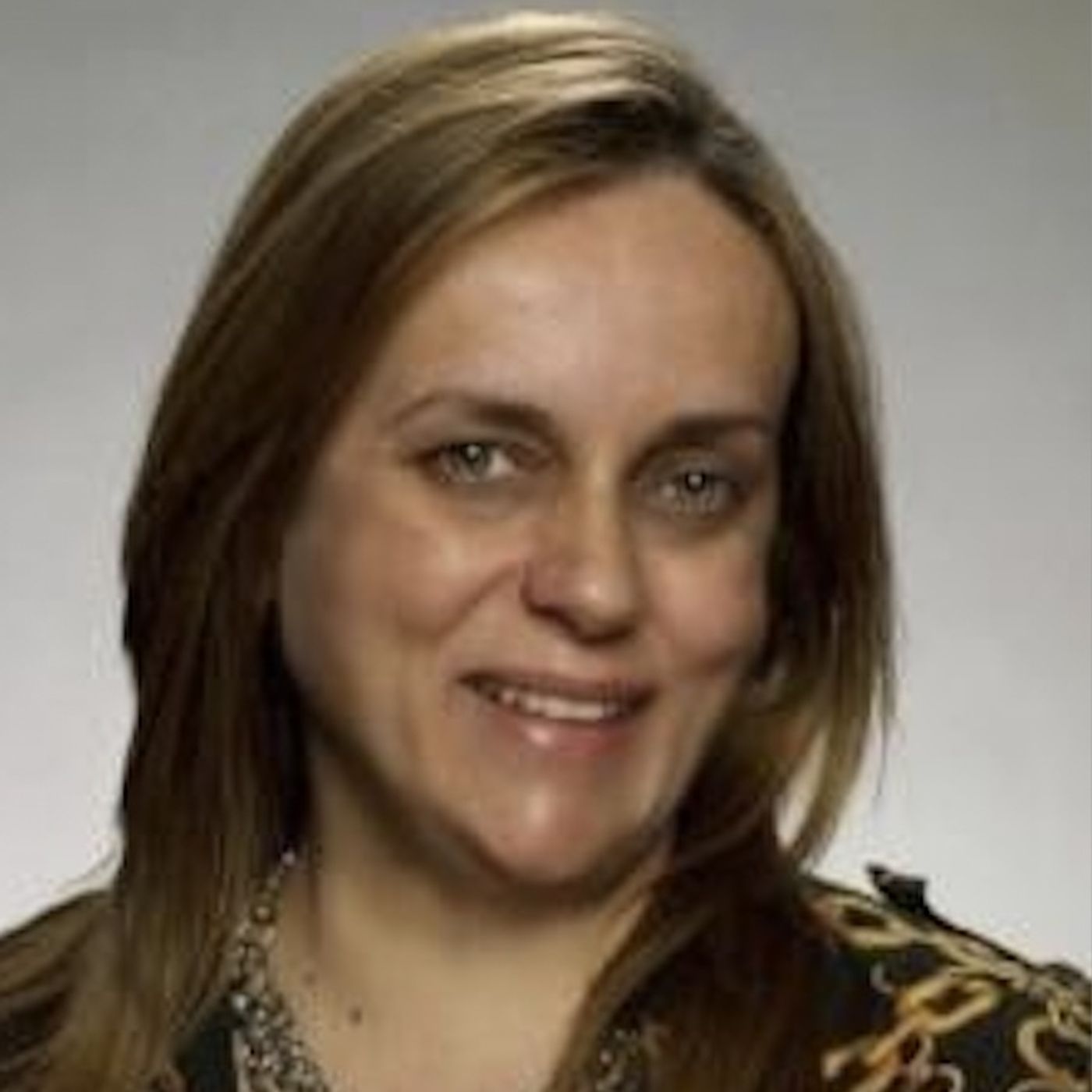
Rare Disease DiscussionsCME Webinar: Biomarkers in Lysosomal Storage DisordersOzlem Goker-Alpan, MD, Founder and Chief Medical Officer at Lysosomal & Rare Disorders Research & Treatment Center (LDRTC) and discusses the latest develops in biomarker research and how biomarkers can improve how patients with lysosomal disorders, such as Gaucher disease and Fabry disease, are managed. To obtain CME/CE credit for this program, go to www.checkrare.comSupport for this educational activity was provided by Takeda, Sanofi and Chiesi.
2022-06-241h 01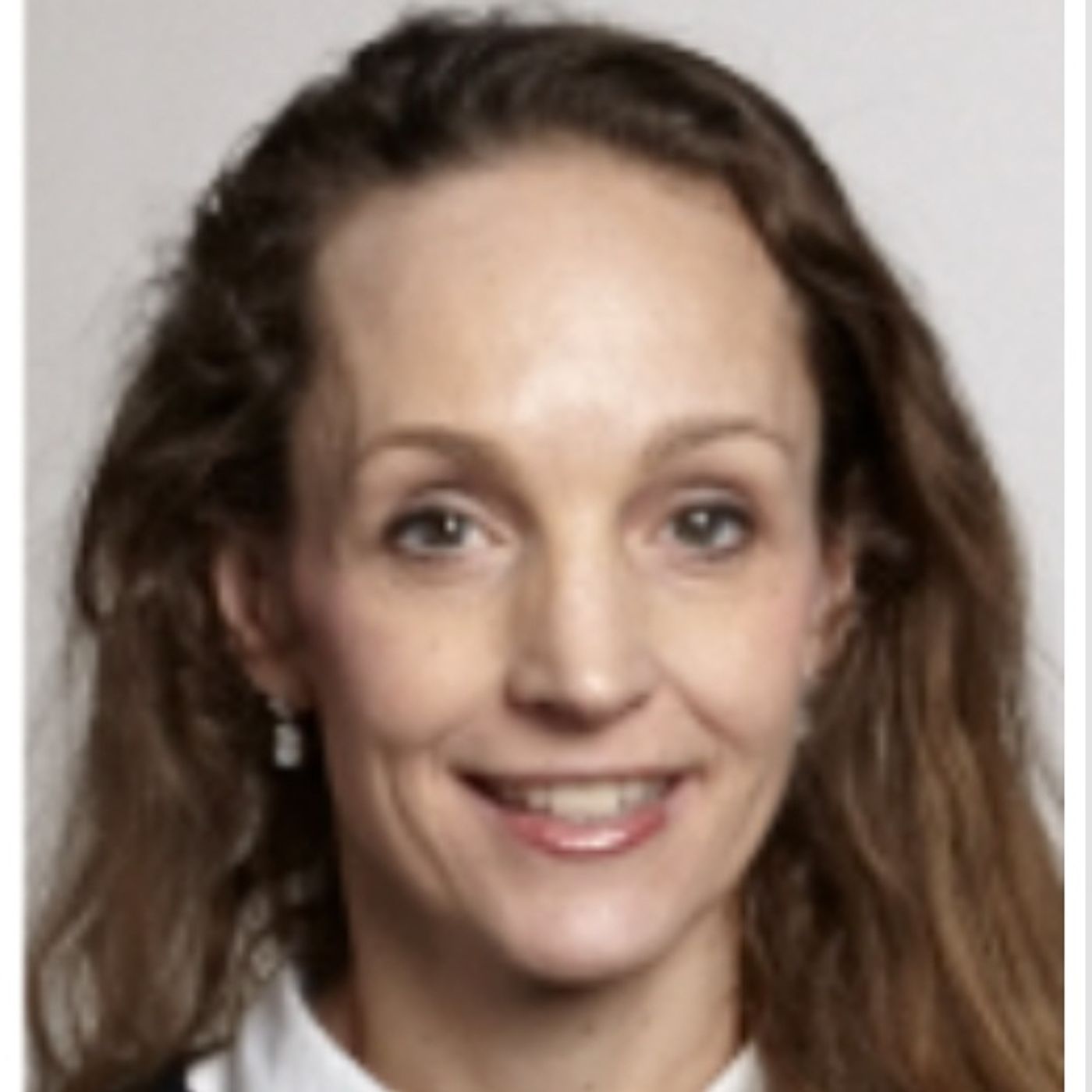
Rare Disease DiscussionsHereditary Angioedema (HAE) Research Highlights: 2022 AAAAI Annual MeetingThis accredited CME activity, led by Paula Busse, MD, Associate Professor of Medicine at the Icahn School of Medicine at Mount Sinai, provides a summary of the latest information about hereditary angioedema (HAE) that was presented at the American Academy of Allergy, Asthma, & immunology 2022 (2022 AAAAI) Annual Meeting. Since to the Covid-19 pandemic limited the ability for AAAAI members to commit fully to the 4-day event, this program provides a concise means to share the clinically relevant information presented at this meeting with AAAAI members as well as other health care professionals who manage individuals with HAE. HAE is...
2022-06-0719 min
Rare Disease DiscussionsAn Interview With Dr. Raymond Wang About Mucopolysaccharidosis Type I (MPS I)Raymond Wang, MD, Metabolic Specialist and Director of the Multidisciplinary Lysosomal Storage Disorder Program at Children's Hospital of Orange County, provides an extensive overview of mucopolysaccharidosis type I (MPS I), also known as Hurler syndrome. In this interview, Dr. Wang explains this rare condition, including its pathophysiology, prevalence, and natural progression. He also discusses the current treatment options for MPS I as well as the work he is doing to assess the safety and efficacy of gene therapy (RGX-111) for this rare disease. MPS I is an inherited lysosomal storage disorder caused by a deficiency in the enzyme...
2022-05-3033 min
Rare Disease DiscussionsPositive Data from Regenxbio’s Gene Therapy Trials for MPS I and MPS IISteve Pakola, MD, Chief Medical Officer for Regenxbio, discusses data from the ongoing gene therapy trials in children with mucopolysaccharidosis type I (MPS I) and mucopolysaccharidosis type II (MPS II). The data was presented at WORLDSymposium 2022.MPS I is an inherited lysosomal storage disorder caused by a deficiency in the enzyme, alpha-L-iduronidase, which is responsible for breaking down glycosaminoglycans (GAGs). These GAGs accumulate in the tissues of MPS I patients, resulting in a diverse clinical profile. In moderate to severe forms of the disease, this accumulation in the central nervous system leads to hydrocephalus, spinal cord compression, and...
2022-05-1617 min
Rare Disease DiscussionsWhat is Dystrophic Epidermolysis Bullosa?Juan Roman, Vice President at Krystal Biotech, gives an overview of dystrophic epidermolysis bullosa (DEB).As Mr. Roman explains, DEB is one of the major forms of epidermolysis bullosa, a group of genetic skin diseases that cause the skin to blister and erode very easily. The signs and symptoms of DEB vary widely among affected people. In mild cases, blistering may primarily affect the hands, feet, knees, and elbows. Severe cases often involve widespread blistering that can lead to vision loss, disfigurement, and other serious medical problems. DEB is caused by mutations in the COL7A1 gene and...
2022-04-2202 min
Rare Disease DiscussionsThe NORD Rare Disease Centers of ExcellenceEdward Neilan, MD, PhD, Chief Scientific and Medical Officer at the National Organization for Rare Disorders (NORD), discusses the organization’s recently established Rare Disease Centers of Excellence.As Dr. Neilan explains, there were two main goals when establishing a national network of rare disease centers. The first goal was to help rare disease patients find medical centers that have deep and broad expertise and could assist them with their diagnosis or treatment of their disease. The second goal was to enable rare disease experts to work collaboratively, which will hopefully lead to faster progress in terms of di...
2022-04-2104 min
Rare Disease DiscussionsData from Phase 3 Gene Therapy Trial in Hemophilia B Patients Very EncouragingSteven Pipe, MD, Professor of Pediatrics and Pathology, and Pediatric Medical Director of the Hemophilia and Coagulation Disorders Program at the University of Michigan, discusses the recent announcement of positive long-term results from the phase 3 HOPE-B clinical trial evaluating etranacogene dezaparvovec (EtranaDez), an investigational gene therapy for hemophilia B.Hemophilia B is a congenital bleeding disorder due to dysfunction or deficiency of coagulation Factor IX (FIX). People with this condition may bleed for longer periods of time after injury or surgery. They are also susceptible to spontaneous bleeding in muscles, joints and organs, which can be extremely painful...
2022-04-1424 min
Rare Disease DiscussionsWhat Is Rett Syndrome?Jeffrey L. Neul, MD, PhD, Professor of Pediatrics, Division of Neurology, Pharmacology, and Special Education at Vanderbilt University Medical Center, gives an overview of Rett syndrome.As Dr. Neul explains, Rett syndrome is a rare progressive neurodevelopmental condition that primarily affects girls. These girls appear to have normal psychomotor development during the first 6 to 18 months of life, followed by a developmental “plateau,” and then rapid regression in language and motor skills. Common symptoms include hand-wringing; fits of screaming and inconsolable crying; autistic features; panic-like attacks; bruxism; episodic apnea and/or hyperpnea; gait ataxia and apraxia; tremors; seizures; and slowed h...
2022-04-0602 min
Rare Disease DiscussionsGene Therapy (RGX-111) to Treat Mucopolysaccharidosis Type I (MPS I)Raymond Wang, MD, Metabolic Specialist and Director of the Multidisciplinary Lysosomal Storage Disorder Program at Children's Hospital of Orange County, discusses RGX-111, an investigational gene therapy for mucopolysaccharidosis type I (MPS I). Data from this study was recently presented at WORLDSymposium 2022.MPS I is an inherited lysosomal storage disorder caused by a deficiency in the enzyme, alpha-L-iduronidase, which is responsible for breaking down glycosaminoglycans (GAGs). In moderate to severe forms of the disease, the accumulation of GAGs in the central nervous system leads to glycosaminoglycans, spinal cord compression, and cognitive impairment. RGX-111 is a recombinant adeno-associated...
2022-04-0109 min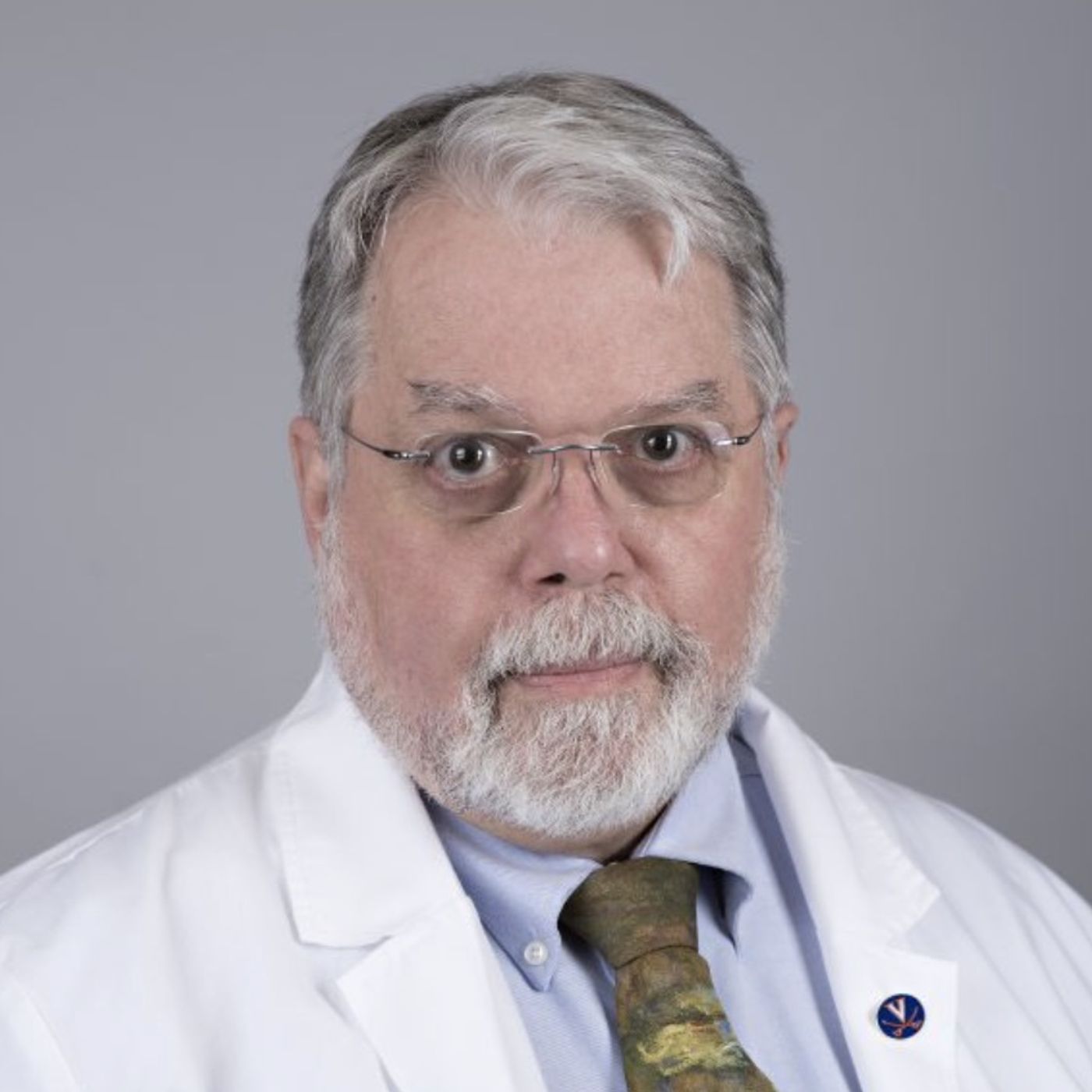
Rare Disease DiscussionsTreatment Options for Myasthenia GravisJames Howard Jr., MD, Distinguished Professor of Neuromuscular Disease and Professor of Neurology and Medicine at UNC School of Medicine, reviews the treatment landscape for myasthenia gravis. Myasthenia gravis is a chronic autoimmune neuromuscular disease characterized by weakness of the skeletal muscles. Common symptoms include weakness of the muscles that control the eyes, eyelids, facial expressions, chewing, talking, and swallowing. The condition is usually due to the presence of antibodies against acetylcholine receptors in the neuromuscular junction.As Dr. Howard explains, due to the variety of ways this rare disease can present, treatment of myasthenia gravis...
2022-03-2313 min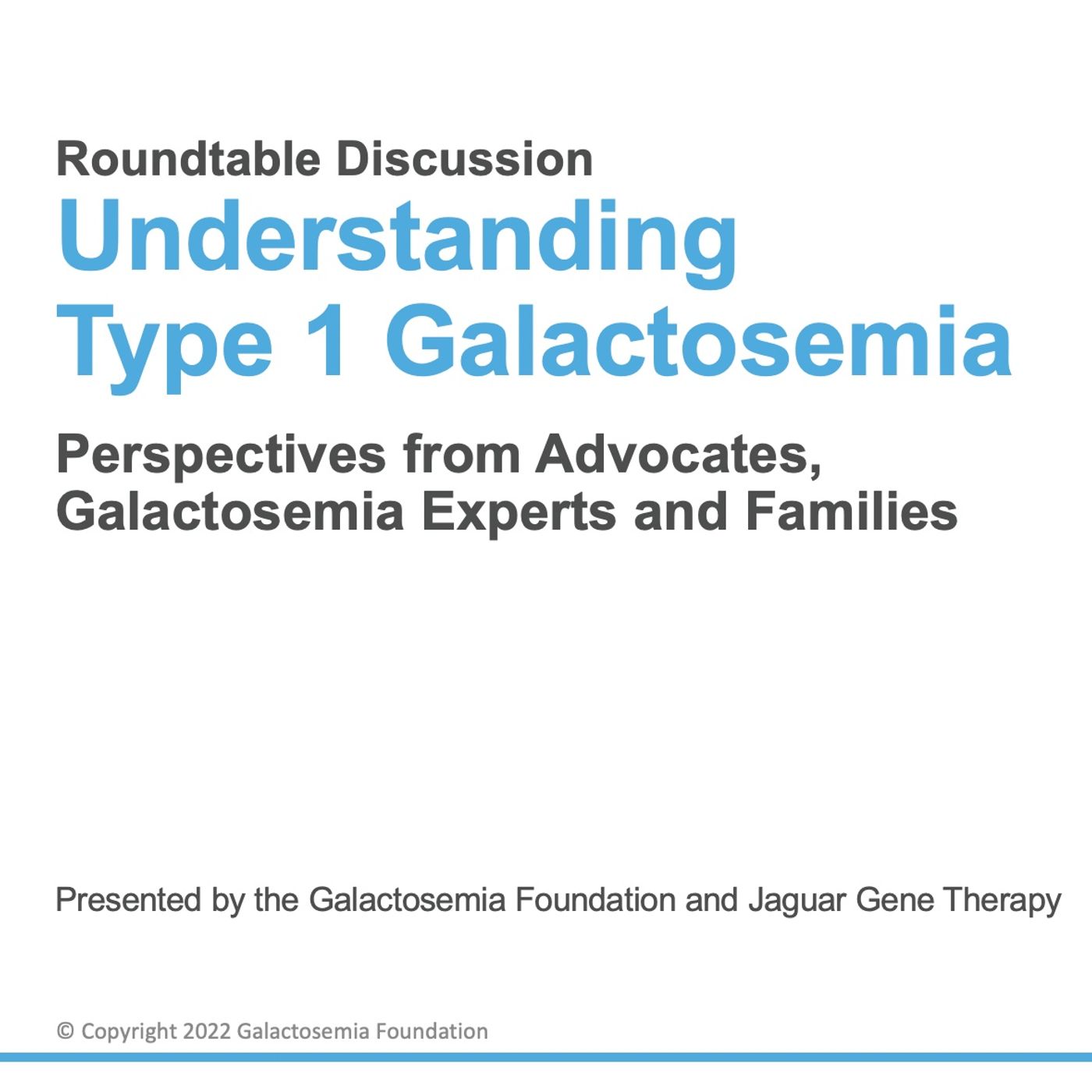
Rare Disease DiscussionsGalactosemia Roundtable Discussion OverviewA group of leading experts in metabolic disorders, advocates, and family representatives attended a virtual conference to discuss Type 1 galactosemia.This roundtable discussion features perspectives from advocates, experts, and families living with Type 1 galactosemia. Galactosemia is a rare genetic disease that can be life-threatening for newborns and cause severe lifelong complications starting as early as the first year of life. Galactosemia affects the body’s ability to make the enzyme that breaks down galactose, a simple sugar produced endogenously by the body that is also found in dairy and other foods, including breast milk. The genetic mutations driving ga...
2022-03-1951 min
Rare Disease DiscussionsMPS II Research Highlights: WORLDSymposium 2022This accredited CME activity, led by Barbara Burton, MD, Professor of Pediatrics at Northwestern University Feinberg School of Medicine highlights the latest research about Mucopolysaccharidosis type II (MPS II; Hunter syndrome) presented at WORLDSymposium 2022 and provides expert analysis of its clinical relevance for busy members of the care team to help them care for patients they may encounter with this rare condition.MPS II; Hunter syndrome is a rare, progressive lysosomal disease caused by deficient activity of iduronate-2-sulfatase, attributable to pathogenic variants of the iduronate-2-sulfatase gene (IDS). Course facial features and skeletal irregularities are the dominant...
2022-03-1921 min
Rare Disease DiscussionsGaucher Disease Research Highlights: WORLDSymposium 2022This accredited CME activity, led by Gregory Grabowski, MD, Professor Emeritus at University of Cincinnati College of Medicine highlights the latest research about Gaucher disease presented at WORLDSymposium 2022 provides expert analysis of its clinical relevance for busy members of the care team to help them care for patients they may encounter with this rare condition.Gaucher disease is a genetic lysosomal storage disorder in which glucocerebroside accumulates in cells and certain organs. The disorder is characterized by bruising, fatigue, anemia, low blood platelet count and enlargement of the liver and spleen. Current therapies options include enzyme replace therapy...
2022-03-1920 min
Rare Disease DiscussionsAADC Deficiency: Panel Discussion OverviewA group of leading experts in pediatric neurology and movement disorders attended a virtual roundtable to discuss diagnostic, symptomatic, and research aspects of aromatic L-amino acid decarboxylase (AADC) deficiency.AADC deficiency is characterized by a defect in the dopa decarboxylase or DDC gene; this dysfunction leads to reduced production of the critical neurotransmitters dopamine, norepinephrine, epinephrine, and melatonin. As a result, patients with AADC deficiency can suffer deficits in vital motor function.The symptoms of this very rare genetic disorder usually appear before children reach one year of age. Patients with severe symptoms rarely survive beyond...
2022-03-1454 min
Rare Disease DiscussionsParoxysmal Nocturnal Hemoglobinuria (PNH) Highlights from ASH 2021This accredited CME activity, led by Carlos De Castro, MD, Professor of Medicine, Duke Hematologic Malignancies Clinic, highlights the latest information about paroxysmal nocturnal hemoglobinuria (PNH) presented at ASH 2021 and provides expert analysis of its clinical relevance for busy members of the care team in order to help them care for patients they may encounter with this rare condition.PNH is a rare, acquired blood disease characterized by hemolytic anemia, bone marrow failure, thrombosis, and fatigue.Supported by an educational grant from Apellis.To obtain CME credit, please go to https://checkrare.com/learning-center...
2022-03-0813 min
Rare Disease DiscussionsSubasumstat + Rituximab Shown to Be Tolerable in Subsets of non-Hodgkin Lymphoma PatientsKaruppiah Kannan, Senior Director - Global Program Leader at Takeda Pharmaceuticals, discusses early results of a phase 1/2 study evaluating subasumstat (TAK-981) in combination with rituximab in multiple subsets of CD20-positive relapsed/refractory non-Hodgkin lymphoma including diffuse large B-cell lymphoma (DLBCL), mantle cell lymphoma (MCL), follicular lymphoma (FL) and marginal zone lymphoma (MZL). The results of this study were recently presented at The American Society of Hematology Meeting & Exposition (ASH 2021).Subasumstat is an investigational, first-in-class small-molecule inhibitor of SUMOylation, which mediates cell cycle progression. In preclinical trials, subasumstat was shown to add synergistic benefit when combined with rituximab...
2022-03-0808 min
Rare Disease DiscussionsDr Jerry Vockley Discusses Latest Phase 2 Data Assessing SYNB1618 To Treat Phenylketonuria (PKU)Jerry Vockley, MD, PhD, Head of the Division of Medical Genetics at UPMC Children’s Hospital of Pittsburgh, gives an update on the phase 2 trial testing SYNB1618 to treat phenylketonuria (PKU).PKU is a rare genetic metabolic disorder that results in reduced activity of phenylalanine hydroxylase that leads to an accumulation of phenylalanine in the body, which can cause significant organ damage, especially in the central nervous system. If left untreated, PKU patients can develop chronic intellectual, neurodevelopmental, and psychiatric disabilities, as well as seizures and heart problems. Lifelong restriction of phenylalanine intake through the diet is needed to...
2022-02-2807 min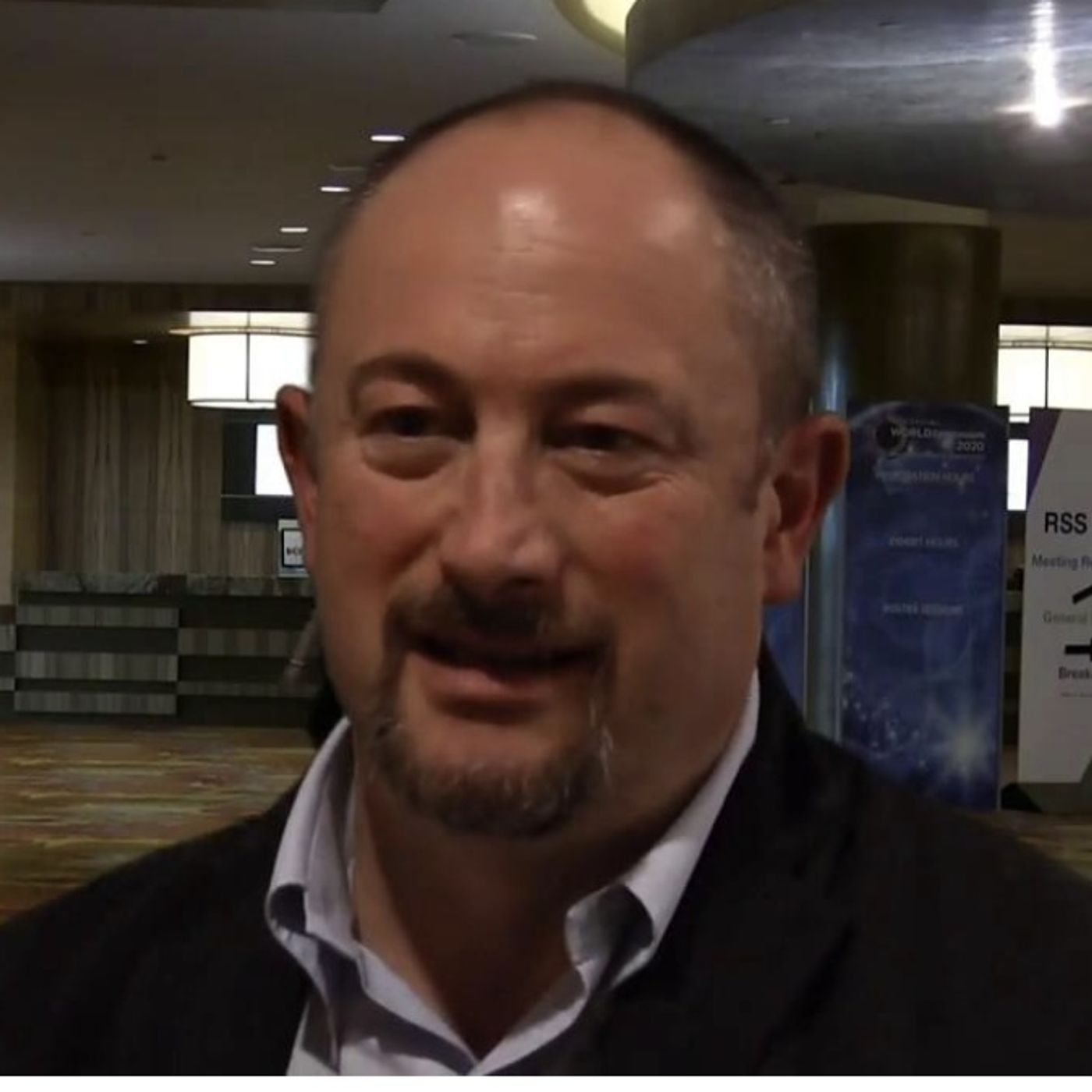
Rare Disease DiscussionsNewborn Screening: Hemoglobinopathies and Newer Disorders on the RUSPThis accredited CME activity, led by David Kronn, MD, Associate Professor of Pathology and Pediatrics at New York Medical College, is the fourth module in a four-part curriculum focused on Best Practices for Explaining Newborn Screening Results to Parents. This module will focus on hemoglobinopathies and newer disorders which are part of the Recommended Uniform Screening Panel (RUSP) in order to better prepare clinicians to discuss positive results with new parents.Supported by an educational grant from bluebird bio Inc. and Ultragenyx Pharmaceutical Inc.To obtain CME credit, please go to https://checkrare.com/learning-center/courses/
2022-02-2214 min
Rare Disease DiscussionsNewborn Screening: Metabolic ConditionsThis accredited CME activity, led by Jerry Vockley, MD, PhD, Chief of Genetic and Genomic Medicine at the University of Pittsburgh, is the third module in a four-part curriculum focused on Best Practices for Explaining Newborn Screening Results to Parents. This module will focus on metabolic diseases which are part of the Recommended Uniform Screening Panel (RUSP) in order to better prepare clinicians to discuss positive results with new parents. Supported by an educational grant from bluebird bio Inc. and Ultragenyx Pharmaceutical Inc.To obtain CME credit, please go to https://checkrare.com/learning-center/courses/
2022-02-2217 min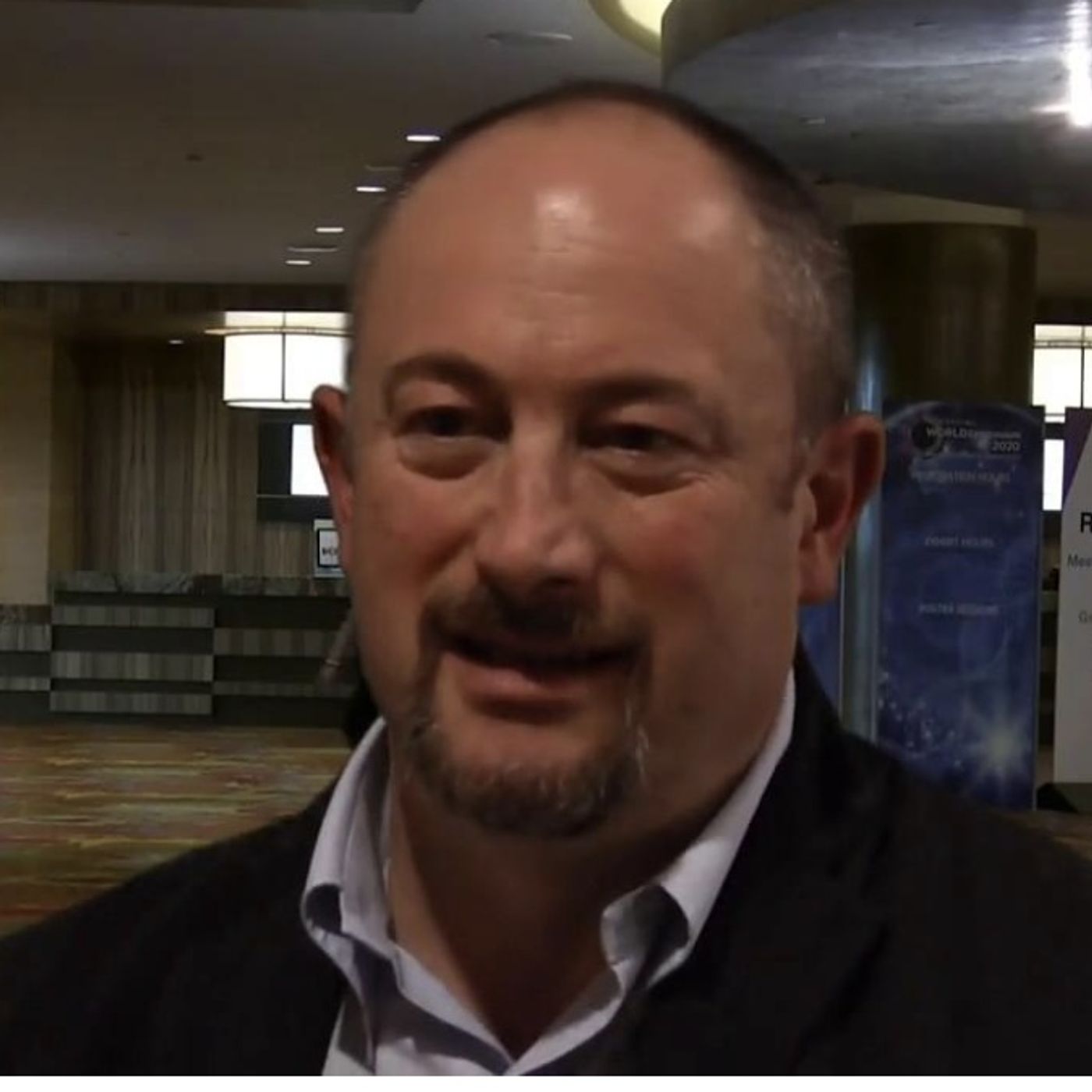
Rare Disease DiscussionsNewborn Screening: Talking to ParentsThis accredited CME activity, led by David Kronn, MD, Associate Professor of Pathology and Pediatrics at New York Medical College, is the second module in a four-part curriculum focused on Best Practices for Explaining Newborn Screening Results to Parents. This module will focus on how to talk to parents about positive NBS results.Supported by an educational grant from bluebird bio Inc. and Ultragenyx Pharmaceutical Inc.To obtain CME credit, please go to https://checkrare.com/learning-center/courses/
2022-02-2215 min
Rare Disease DiscussionsNewborn Screening: From RUSP to RealityThis accredited CME activity, led by Jerry Vockley, MD, PhD, Chief of Genetic and Genomic Medicine at the University of Pittsburgh, is the first module in a four-part curriculum focused on Best Practices for Explaining Newborn Screening Results to Parents. This module will provide clinicians with the fundamentals of newborn screening.Supported by an educational grant from bluebird bio Inc. and Ultragenyx Pharmaceutical Inc.To obtain CME credit, please go to https://checkrare.com/learning-center/courses/
2022-02-2220 min
Rare Disease DiscussionsPyruvate Kinase (PK) Deficiency Highlights from ASH 2021This accredited CME activity, led by Rachael Grace, MD, Associate Professor, Harvard Medical School, highlights the latest research about pyruvate kinase (PK) deficiency presented at ASH 2021 and provides expert analysis of its clinical relevance for busy members of the care team to help them care for patients they may encounter with this rare condition.PK deficiency is a rare blood disease due to mutations in the PKLR gene that leads to decreased PK levels. Current therapies options are supportive (transfusions, iron chelation, splenectomy) but treatments are in development to better address the pathophysiology of this rare condition.
2022-02-1813 min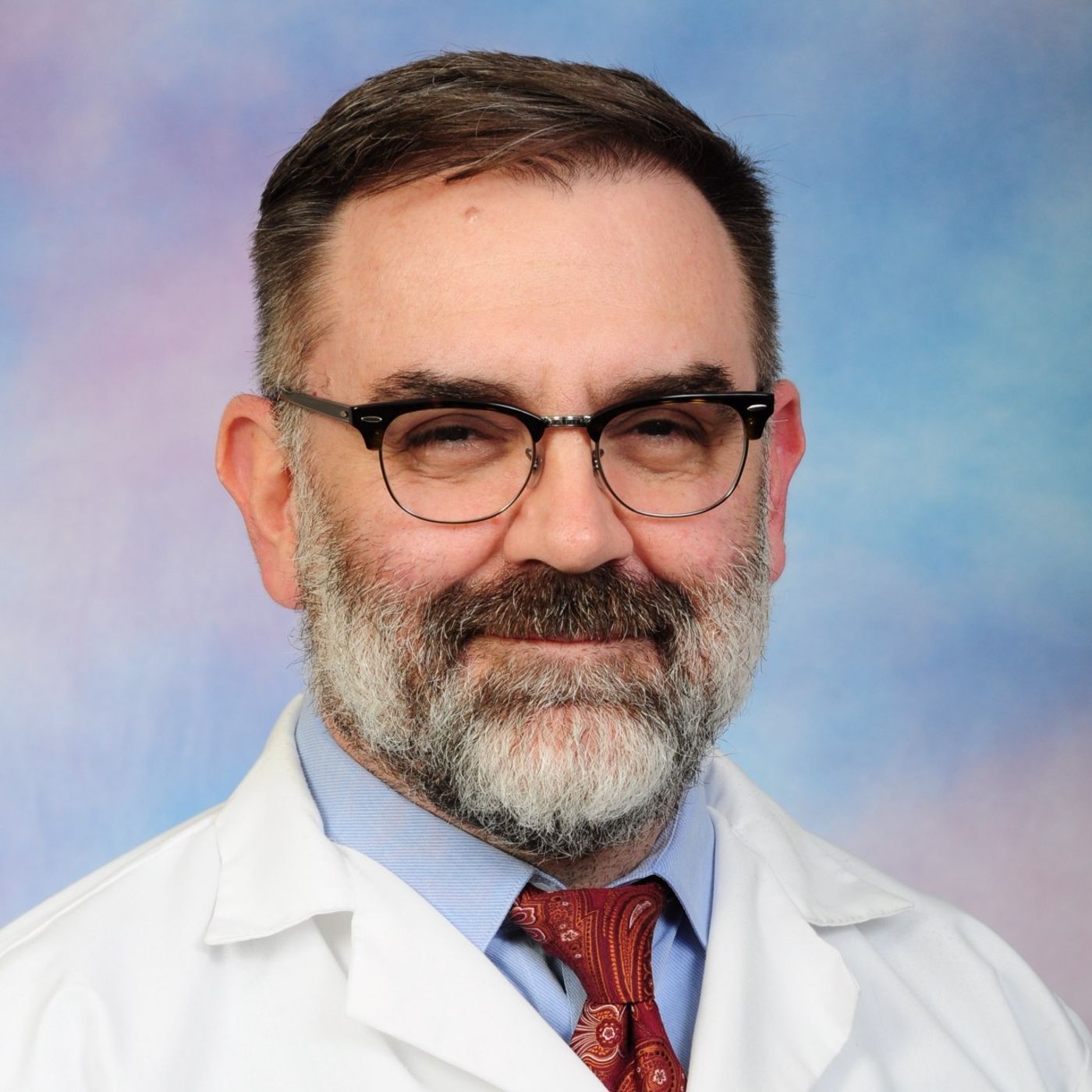
Rare Disease DiscussionsTreatment Landscape for Relapsed and Refractory Multiple MyelomaJeffrey A. Zonder, MD, Hematologist-Oncologist from the Barbara Ann Karmanos Cancer Institute in Detroit, Michigan, describes the treatment landscape for patients with relapsed or refractory multiple myeloma.Multiple myeloma is a rare blood cancer associated with uncontrolled growth of plasma cells. Abnormal plasma cells – also known as myeloma cells – interfere with the production of healthy blood cells in the bone marrow. Myeloma cells also produce inactive clones of abnormal antibodies that may negatively affect the bones and kidneys. Symptoms of multiple myeloma may include: bone pain (particularly in the chest and spine), frequent infections, weakness or numbness in the...
2022-02-1704 min
Rare Disease DiscussionsTeclistamab Monotherapy for Relapsed/Refractory Multiple Myeloma PatientsPhillip Moreau, MD, PhD, Head of the Hematology Department at the University Hospital Phillip Moreau, MD, PhD, Head of the Hematology Department at the University Hospital Hôtel-Dieu, discusses the updated results from MajesTEC-1, a phase 1/2 study of teclistamab in relapsed/refractory multiple myeloma. These results were recently presented at The American Society of Hematology Meeting & Exposition (ASH 2021).Multiple myeloma is a rare blood cancer. While the disease is treatable, relapses are common and some patients are refractory to first line treatment.As Dr. Moreau explains, MajesTEC-1 is a phase 1/2 study testing teclistamab in relapsed/refractory m...
2022-02-0605 min
Rare Disease DiscussionsLysosomal Storage Diseases: Central Symptoms and ComorbiditiesDrs. Ozlem Goker-Alpan and Swati Sathe discuss how our growing awareness of the central symptoms and comorbidities associated with many lysosomal storage diseases is changing how we manage these rare diseases. This CME/CE activity is possible through an educational grant from Takeda, Cheisi, Ultragenyx Pharmaceuticals, and Spark Therapeutics.To obtain credit for this activity, please visit https://checkrare.com/learning-center/courses/
2022-01-271h 06
Rare Disease DiscussionsHereditary Angioedema (HAE) Highlights from ACAAI 2021 Annual MeetingThis accredited CME activity, led by Jonathan Bernstein, MD, Professor of Medicine at the University of Cincinnati, provides a summary of the latest information about hereditary angioedema (HAE) that was presented at the American College of Allergy, Asthma, & immunology 2021 Annual Scientific Meeting (ACAAI 2021). Since to the Covid-19 pandemic limited the ability for ACAAI members to commit fully to the 5-day event, this program provides a concise means to share the clinically relevant information presented at ACAAI 2021 with ACAAI members as well as other health care professionals who manage individuals with HAE.HAE is a rare genetic disease that...
2022-01-2721 min
Rare Disease DiscussionsPositive Long-Term Data of Ibrutinib + Venetoclax as First-Line Treatment for Chronic Lymphocytic Leukemia (CLL)Paolo Ghia, MD, PhD, Professor at the Università Vita-Salute San Raffaele, Milan, Italy, discusses the updated, long-term data from the phase 2 CAPTIVATE study. This study evaluated ibrutinib plus venetoclax as a first-line treatment for chronic lymphocytic leukemia (CLL); data from this trial was recently presented at the American Society of Hematology Meeting & Exposition (ASH 2021).
2022-01-2404 min
Rare Disease DiscussionsPositive Safety and Efficacy Results in Rett Syndrome StudyJeffrey Neul, MD, PhD, Professor of Pediatrics at Vanderbilt University Medical Center, discusses recent top-line results from a phase 3 trial testing trofinetide to treat children with Rett syndrome.Trofinetide is an analog of insulin-like growth factor 1 (IGF-1) and it is speculated that the orphan drug can restore homeostasis of neuronal signaling in diseases such as Rett syndrome.Rett syndrome is a rare progressive neurodevelopmental condition that primarily affects girls. These girls appear to have normal psychomotor development during the first 6 to 18 months of life, followed by a developmental “plateau,” and then rapid regression in language and motor skills...
2022-01-1203 min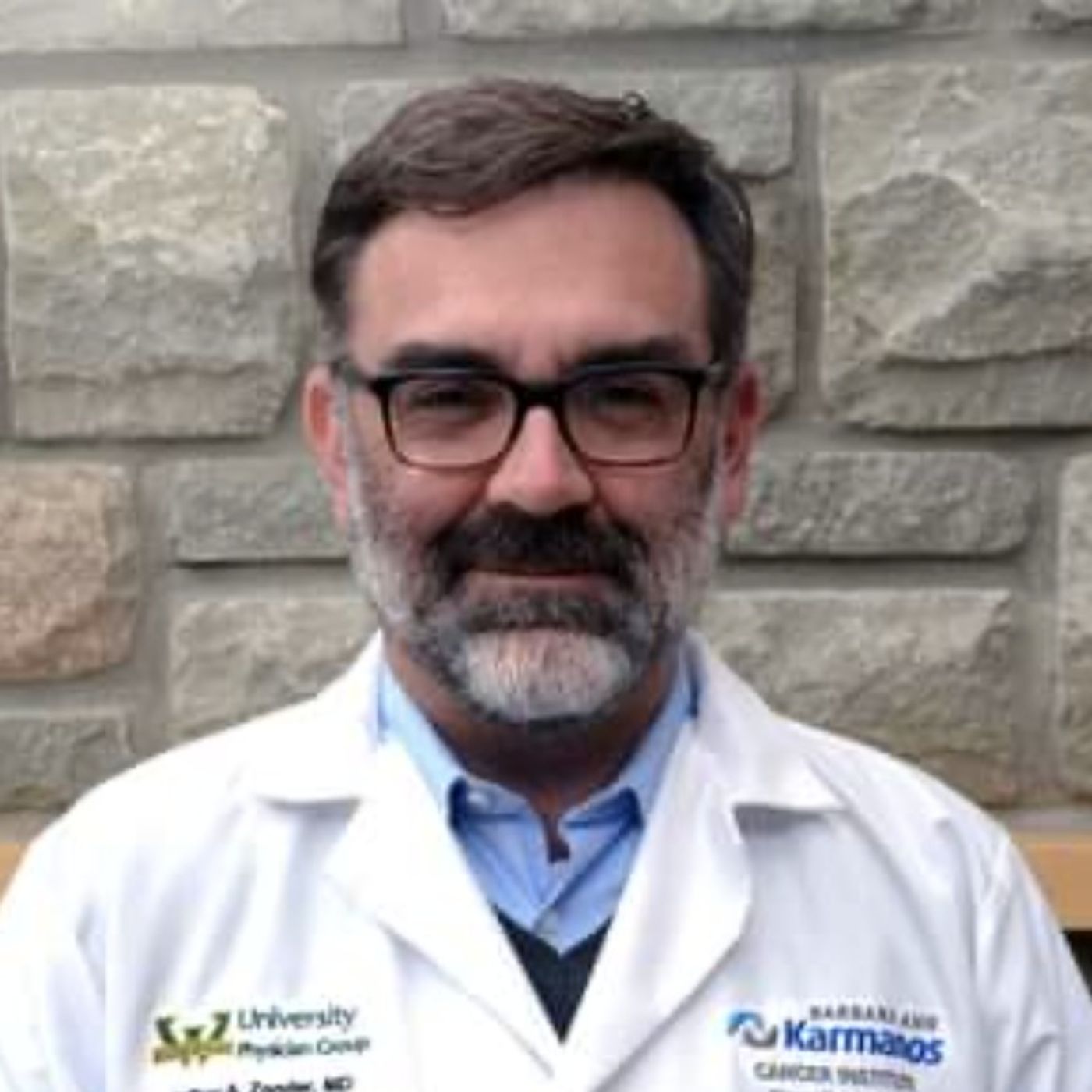
Rare Disease DiscussionsSafety of the Bispecific Antibody, REGN5458, in Multiple Myeloma PatientsJeffrey A. Zonder, MD, hematologist-oncologist at the Barbara Ann Karmanos Cancer Institute in Detroit, Michigan, discusses data from the first-in-human study testing REGN5458 as a monotherapy for relapsed/refractory multiple myeloma patients (NCT03761108). Data from the phase 1 portion of this study were recently presented at The American Society of Hematology Meeting & Exposition (ASH 2021).Multiple myeloma is a rare blood cancer associated with uncontrolled growth of plasma cells. While the disease is treatable, relapses are common and some patients are refractory to first line treatment.As Dr. Zonder explains, REGN5458 is a BCMA x CD3 bispecific antibody...
2022-01-0509 min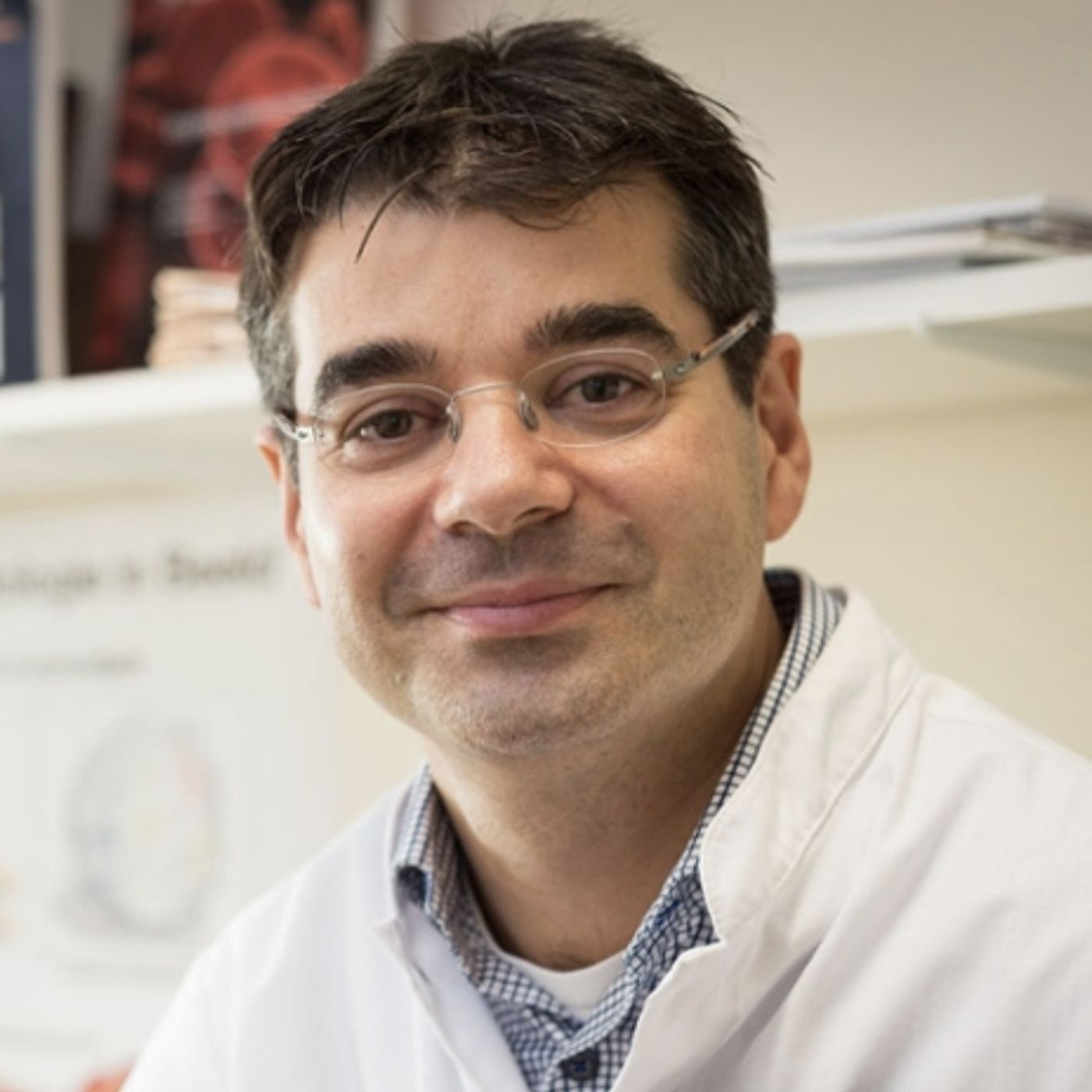
Rare Disease DiscussionsSustained uMRD Demonstrated in Elderly CLL Patients Receiving Ibrutinib plus VenetoclaxArnon Kater, MD, PhD, Professor of Internal Medicine in the Faculty of Medicine at the University of Amsterdam discusses new data from the GLOW study of ibrutinib plus venetoclax (I+V) in elderly or unfit chronic lymphocytic leukemia (CLL) patients. The data were recently presented at The American Society of Hematology Meeting & Exposition (ASH 2021).CLL is a rare blood cancer resulting in a build-up of lymphocytes in bone marrow, lymph nodes, and blood. The disease is considered treatable, but relapse is very common. Furthermore, many CLL patients cannot withstand the intensive chemotherapy needed to bring them into complete...
2021-12-2303 min
Rare Disease DiscussionsDr Anne Pariser Provides an Overview of NIH’s Office of Rare Diseases ResearchAnne Pariser, MD, Director of the NCATS’ Office of Rare Diseases Research (ORDR), provides an overview of the ORDR and the research they are involved with. The ORDR is focused on multiple programs to improve the efficacy of rare disease research. Their two largest programs are the Rare Diseases Clinical Research Network (RDCRN) and the Genetic and Rare Diseases Information Center (GARD).RDCRN provides support for clinical studies and facilitates collaboration, study enrollment and data sharing. Through the RDCRN consortia, researchers work with patient advocacy groups to study over 200 rare diseases at sites across the nation.
2021-12-1904 min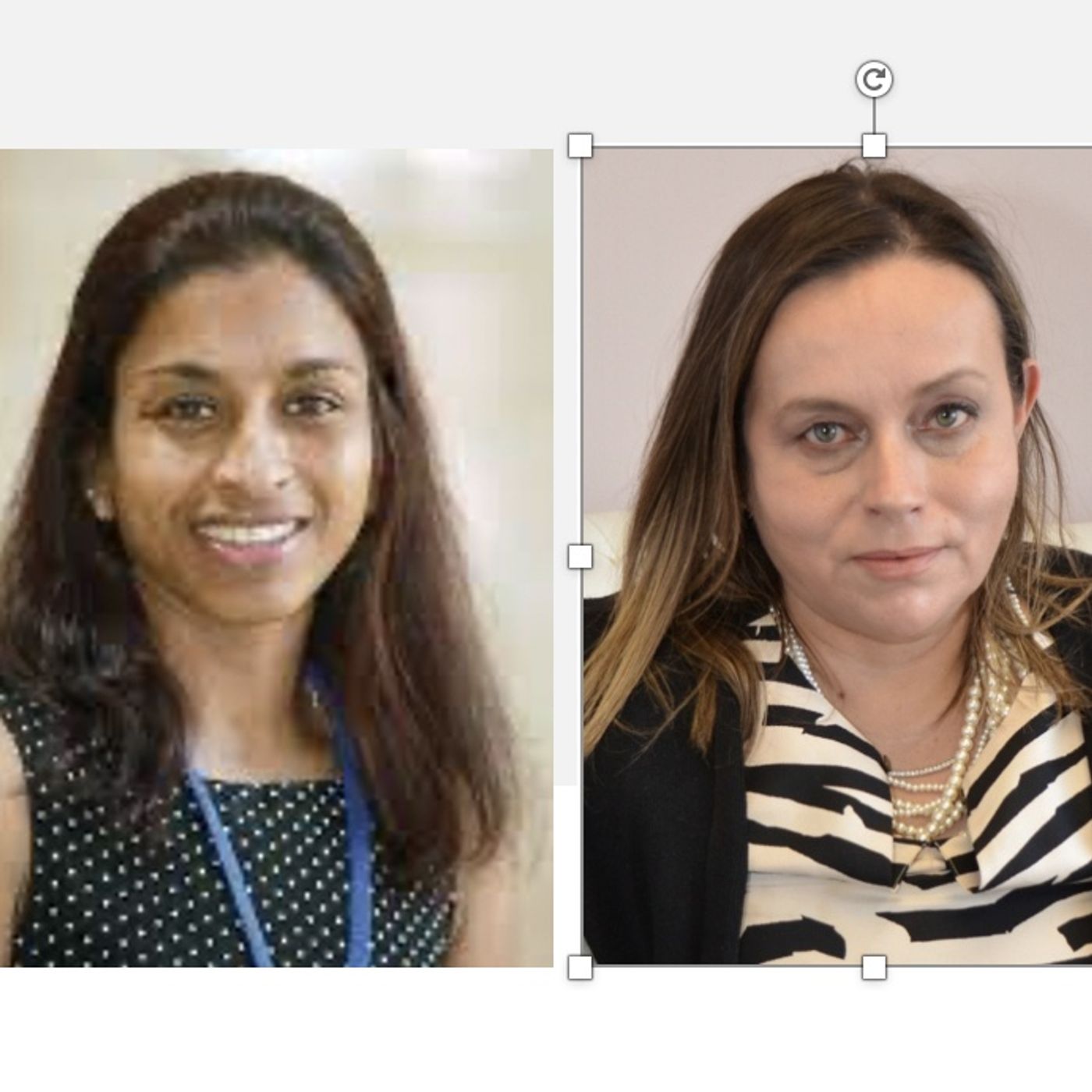
Rare Disease DiscussionsNew and Emerging Phenotypes in Lysosomal Storage DisordersDrs. Ozlem Goker-Alpan and Uma Ramaswami discuss how the success of therapies to treat lysosomal storage disorders like Pompe disease, Gaucher disease, and various MPSs, has created phenotypes that previously did not exist. This CME/CE activity is possible through an educational grant from Takeda, Cheisi, Ultragenyx Pharmaceuticals, and Spark Therapeutics.To obtain credit for this activity, please visit https://checkrare.com/learning-center/courses/
2021-12-0755 min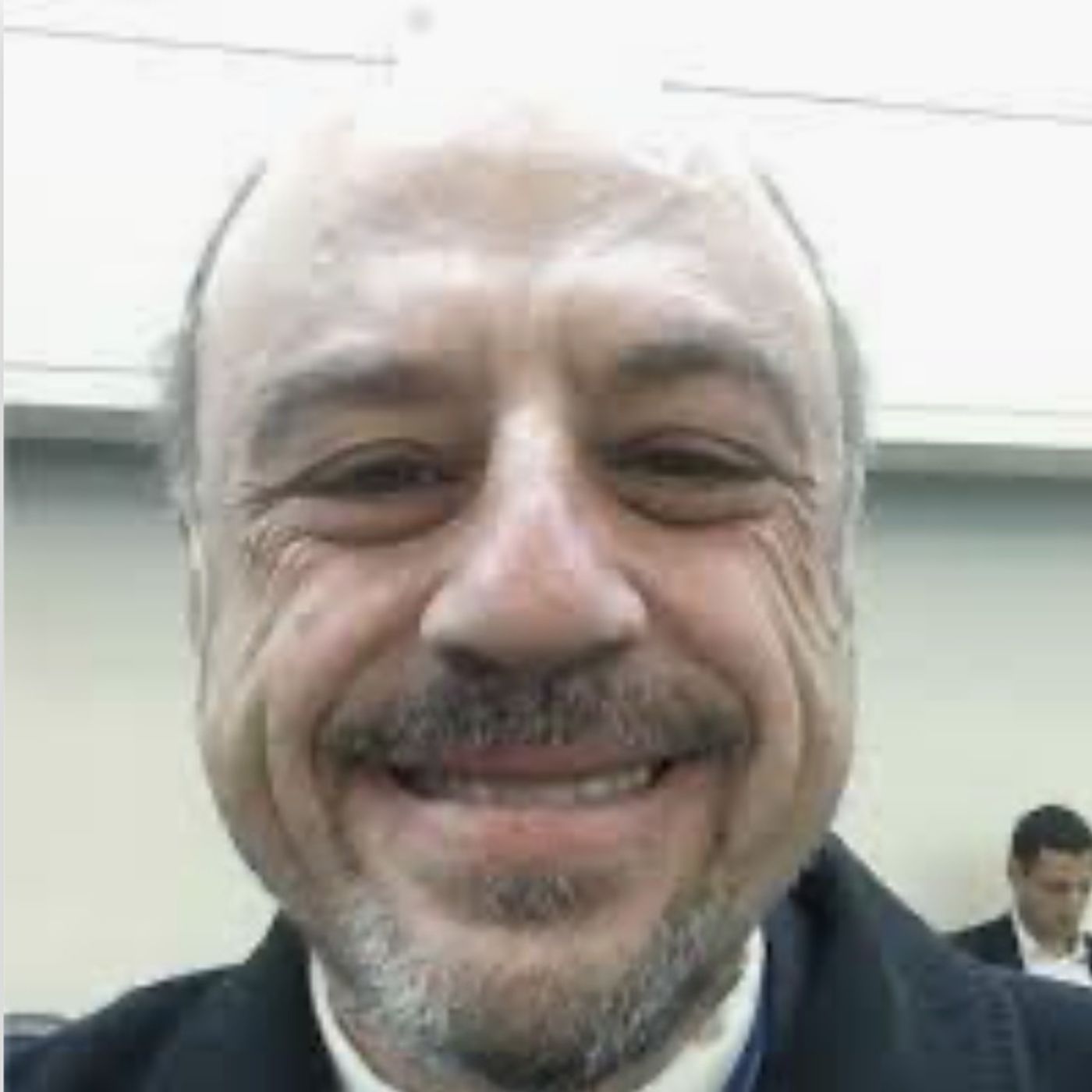
Rare Disease DiscussionsRetinoid Therapy for Congenital Ichthyosis Shows PromiseAlan Mendelsohn, MD, Chief Medical Officer at Timber Pharmaceuticals, gives an update on their congenital ichthyosis clinical trial.Congenital ichthyosis is a rare genetic skin disorder characterized by dry, thickened, and scaling skin. Individuals with this condition may experience limited range in motion, chronic itching, an inability to sweat, and increased risk of infections. Currently, there is no approved targeted therapy for congenital ichthyosis. Symptom management for the condition is most often achieved with topical treatments (e.g., emollients, keratolytics, frequent baths, pumice stones) aimed at reducing the scaling and/or improving skin lubrication.As Dr...
2021-11-2105 min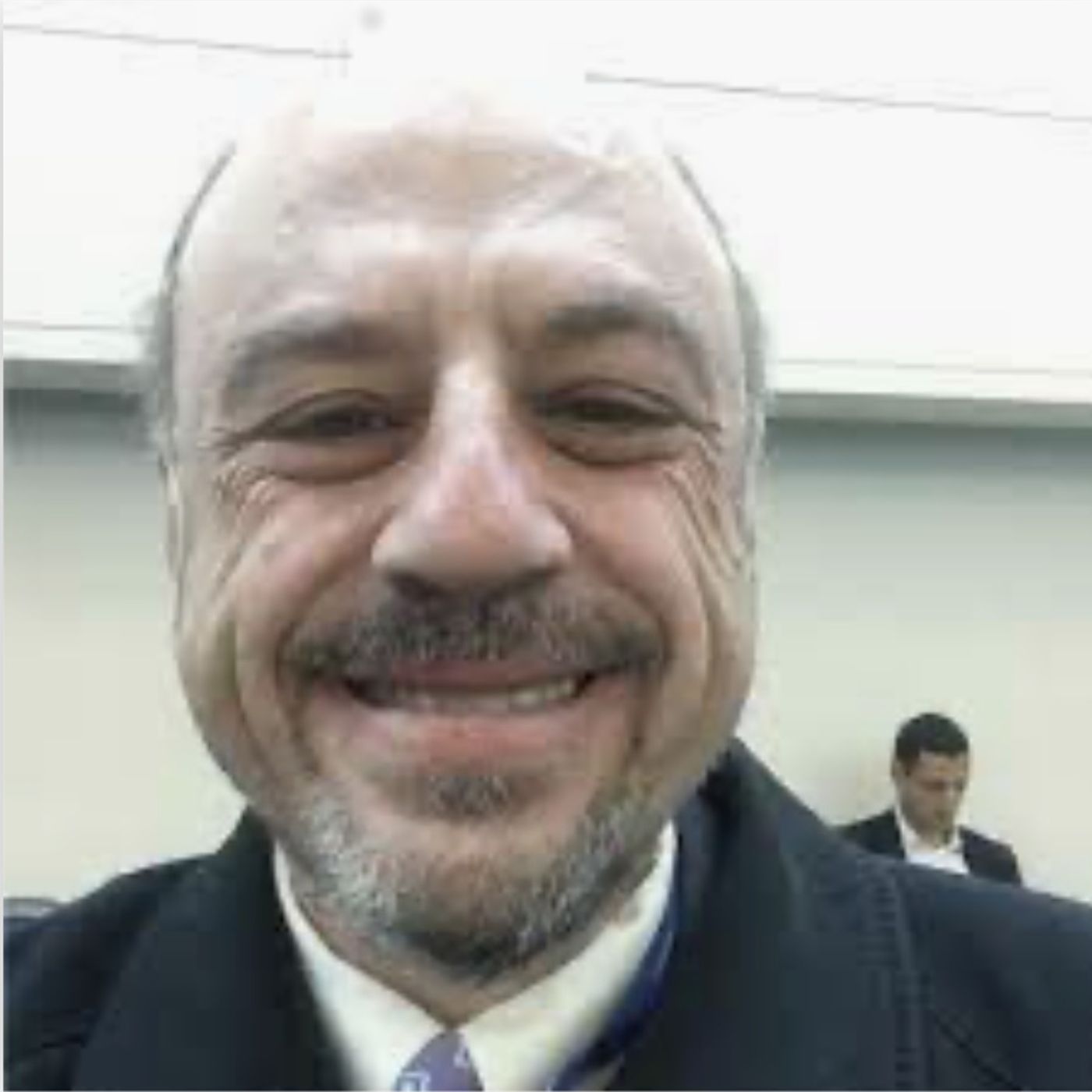
Rare Disease DiscussionsOverview of Congenital IchthyosisAlan Mendelsohn, MD, Chief Medical Officer at Timber Pharmaceuticals, gives a detailed overview of congenital ichthyosis.As Dr. Mendelsohn explains, congenital ichthyosis is a rare genetic skin disorder characterized by dry, thickened, and scaling skin. Individuals with this condition may experience limited range in motion, chronic itching, an inability to sweat, and increased risk of infections. Congenital harlequin ichthyosis is a devastating subtype where skin over the entire body is thickened which can inhibit eating and breathing.Dr. Mendelsohn also notes that there is no approved targeted therapy for congenital ichthyosis. Symptom management for the condition is most...
2021-11-1804 min
Rare Disease DiscussionsMilademetan Shows Promise as Treatment for Multiple Cancer TypesAvanish Vellanki, Cofounder and CEO at Rain Therapeutics, discusses the role of p53 and MDM2 in cancers like liposarcoma, the mechanism of action of milademetan, and the positive pre-clinical data presented at the 2021 World Conference of Lung Cancer. As Mr. Vellanki explains, p53 regulates the cell cycle and is essential for tumor suppression. MDM2 is a crucial regulator of p53. If MDM2 is overexpressed, p53 can be inactivated, leading to tumor growth and cancer progression. Milademetan, Rain Therapeutics’ lead product candidate, inhibits MDM2, and, in doing so, is hypothesized to reactivate p53 and thus control cancer growth in ap...
2021-10-1210 min
Rare Disease DiscussionsOverview of Juvenile Idiopathic Arthritis (JIA)Daniel Lovell, MD, MPH, Associate Director of the Division of Rheumatology at Cincinnati Children's Hospital Medical Center, gives an overview of juvenile idiopathic arthritis (JIA).As Dr. Lovell explains, JIA is an umbrella term for a number of diseases in individuals under the age of 16 and characterized by chronic arthritis that persists for at least 6 weeks. There are currently seven recognized subsets of JIA. These include: systemic juvenile idiopathic arthritis, oligoarticular juvenile idiopathic arthritis (also known as oligoarthritis), rheumatoid factor positive polyarticular juvenile idiopathic arthritis (also known as polyarthritis, rheumatoid factor positive), rheumatoid factor negative polyarticular juvenile idiopathic...
2021-10-1203 min
Rare Disease DiscussionsNew Insights into Lysosomal Storage Diseases’ Pathophysiology is Changing TreatmentDrs Ozlem Goker-Alpan and Gregory Grabowski discuss how new research into the pathophysiology of lysosomal storage diseases is changing how we manage these rare diseases. . This CME/CE activity is possible through an educational grant from Takeda, Cheisi, Ultragenyx Pharmaceuticals, and Spark Therapeutics.To obtain credit for this activity, please visit https://checkrare.com/learning-center/courses/
2021-07-281h 05
Rare Disease DiscussionsOverview of SarcomasRoman Groisberg, MD, Medical Oncologist and Director of the Sarcoma Program at Rutgers Cancer Institute of New Jersey/RWJBarnabas Health, gives an overview of sarcomas.
2021-07-2203 min
Rare Disease DiscussionsCurrent Treatment Options for Bone and Soft Tissue SarcomasRoman Groisberg, MD, Medical Oncologist and Director of the Sarcoma Program at Rutgers Cancer Institute of New Jersey/RWJBarnabas Health, discusses treatment options available for different sarcomas.
2021-07-2212 min
Rare Disease DiscussionsHow the MMRF Is Advancing Multiple Myeloma ResearchDaniel Auclair, MD, Chief Scientific Officer of the Multiple Myeloma Research Foundation (MMRF), discusses the foundation’s history and what they are currently doing to progress multiple myeloma research.
2021-07-2014 min
Rare Disease DiscussionsWhat is Krabbe Disease?Tim Miller, PhD, CEO, President, and Co-Founder of Forge Biologics, gives an overview of Krabbe disease.
2021-07-0701 min
Rare Disease DiscussionsGene Therapy Clinical Trial for Krabbe Disease is Recruiting PatientsTim Miller, PhD, CEO, President, and Co-Founder of Forge Biologics, discusses the phase 1/2 RESKUE study which will evaluate FBX-101 for the treatment of Krabbe disease. This clinical trial is currently recruiting.
2021-07-0701 min
Rare Disease DiscussionsTCGT: Overview, Symptoms, and the Need for a Multidisciplinary ApproachWilliam D. Tap, MD, Chief of the Sarcoma Medical Oncology Service at Memorial Sloan Kettering Cancer Center, gives an overview of tenosynovial giant cell tumors (TGCT), their symptoms, and why a multidisciplinary team is needed to treat them.
2021-06-1604 min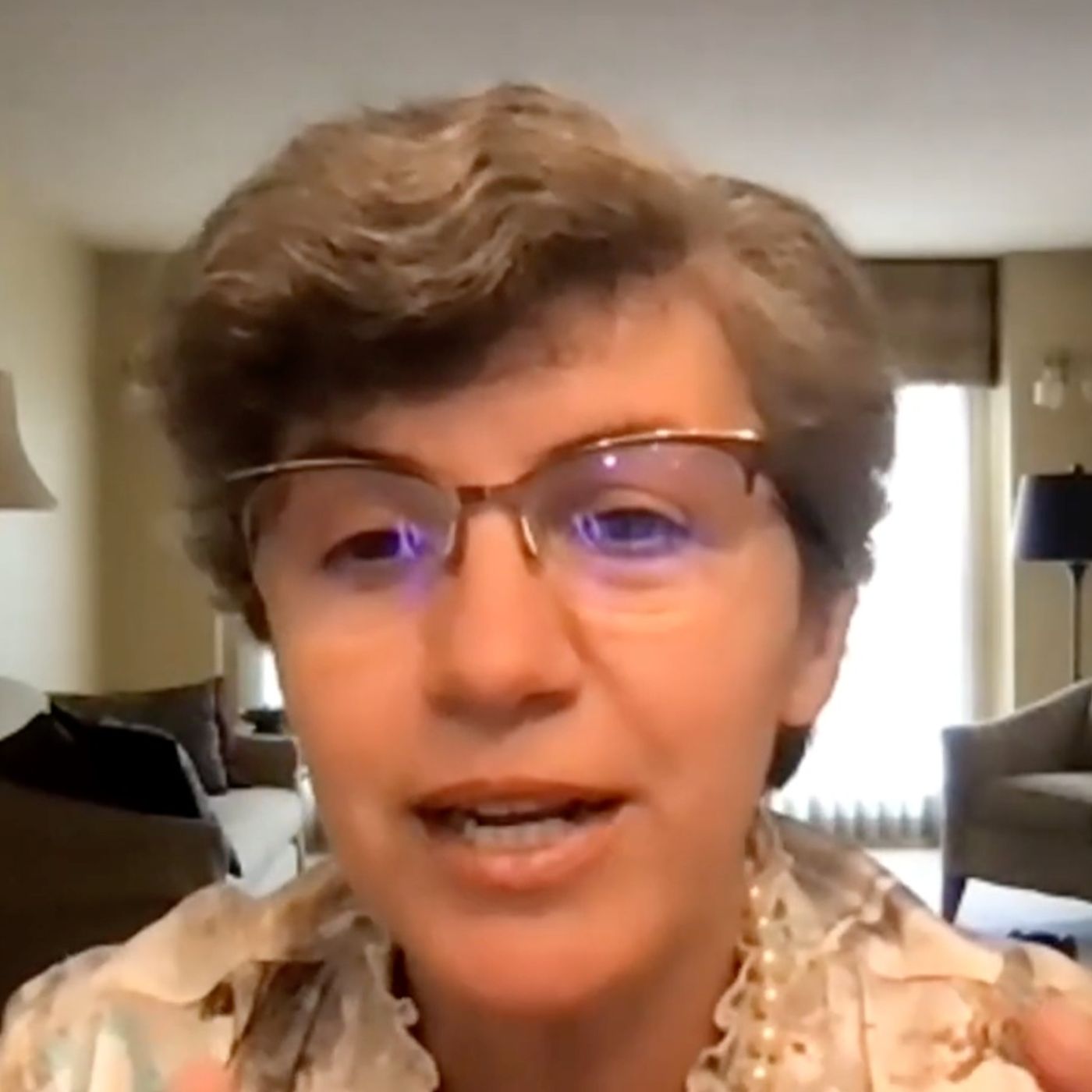
Rare Disease DiscussionsAcromegaly Highlights from ENDO 2021Maria Fleseriu, MD, FACE, Professor of Medicine and Neurological Surgery and Director of the Pituitary Center at Oregon Health and Science University provides an overview of acromegaly research highlights presented at ENDO 2021. This CME activity is possible through an educational grant from Ipsen BioPharmaceuticals, Inc.To obtain credit for this activity, please visit https://checkrare.com/learning-center/courses/
2021-06-1118 min
Rare Disease DiscussionsCurrent and Emerging Treatments for Lysosomal Storage DiseasesPlease join Drs. Ozlem Goker-Alpan and Ari Zimran as they discuss the latest developments in the treatments for lysosomal storage diseases.
2021-05-051h 07
Rare Disease DiscussionsFabry Disease Research Highlights 2021Derralynn Hughes, MD, from the Royal Free London NHS Foundation Trust discusses the latest research about Fabry disease that was presented at WORLDSymposium 2021.To obtain CME credit, go to https://checkrare.com/learning-center/courses/
2021-04-2113 min
Rare Disease DiscussionsPrader-Willi Syndrome OverviewRudolf Baumgartner, MD, Chief Medical Officer and Head of Clinical Development at Saniona, gives an overview of Prader-Willi syndrome (PWS)
2021-04-2004 min
Rare Disease DiscussionsInvestigational Drug Provides Improved Quality of Life for PNH PatientsCedric Francois, MD, PhD, Co-Founder & CEO of Apellis Pharmaceuticals, discusses the results of the PEGASUS study evaluating the efficacy and safety of pegcetacoplan in patients with paroxysmal nocturnal hemoglobinuria (PNH).
2021-04-1507 min
Rare Disease DiscussionsWhat is Paroxysmal Nocturnal Hemoglobinuria?Cedric Francois, MD, PhD, Co-Founder & CEO of Apellis Pharmaceuticals, gives an overview of paroxysmal nocturnal hemoglobinuria (PNH).
2021-04-1505 min
Rare Disease DiscussionsFollicular Lymphoma and Marginal Zone LymphomaOwen A. O’Connor, Chief Scientific Officer at TG Therapeutics, gives an overview of follicular lymphoma (FL) and marginal zone lymphoma (MZL).
2021-04-1505 min
Rare Disease DiscussionsPhase 2 UNITY-NHL Study Regarding UmbralisibOwen A. O’Connor, Chief Scientific Officer at TG Therapeutics, describes the phase 2 UNITY-NHL study, the results of which led to the FDA’s approval of umbralisib.
2021-04-1502 min
Rare Disease DiscussionsFDA Approves Umbralisib for Marginal Zone Lymphoma, Follicular LymphomaOwen A. O’Connor, Chief Scientific Officer at TG Therapeutics, discusses umbralisib, which was approved for the treatment of relapsed or refractory follicular lymphoma (FL) and relapsed or refractory marginal zone lymphoma (MZL)
2021-04-1505 min
Rare Disease DiscussionsPrader-Willi Syndrome OverviewRudolf Baumgartner, MD, Chief Medical Officer and Head of Clinical Development at Saniona, gives an overview of Prader-Willi syndrome (PWS)
2021-04-1205 min
Rare Disease DiscussionsPrader-Willi Syndrome: Overview and Potential TreatmentRudolf Baumgartner, MD, Chief Medical Officer and Head of Clinical Development at Saniona, gives an overview of Prader-Willi syndrome (PWS) and tesomet, a drug combination under investigation for the treatment of PWS. As Dr. Baumgartner explains, PWS is a rare genetic endocrine condition that causes hypotonia and hyperphagia. It is caused by genetic abnormalities in the proximal long arm of chromosome 15. PWS is usually detected in childhood due to hypotonic and hyperphagic features of this disorder. While the obsession with food is the overwhelming symptom of PWS, the children have several other symptoms, including numerous cognitive and behavioral...
2021-04-0804 min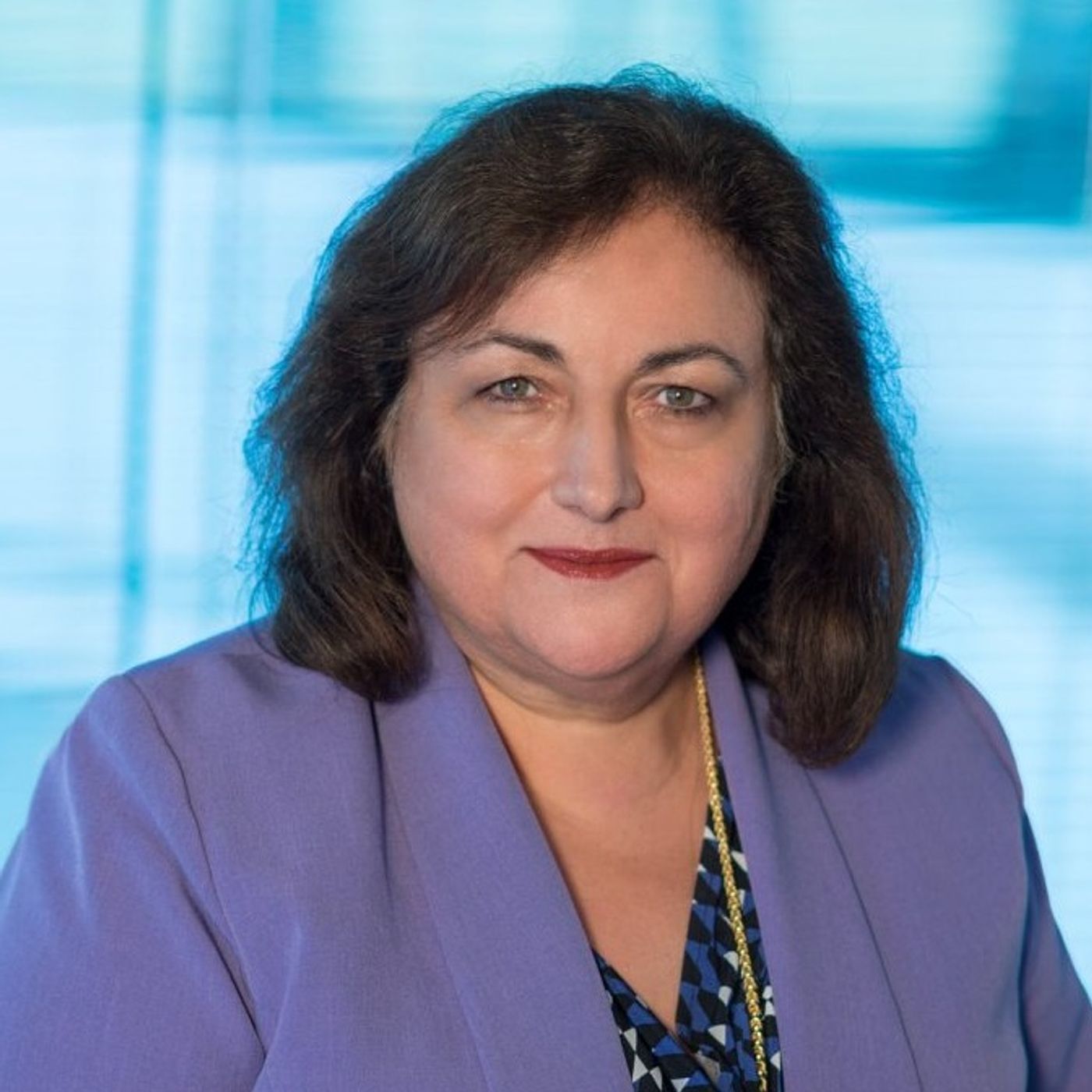
Rare Disease DiscussionsRare Disease Clinical Trials: Study Designs and Common ConcernsMiganush Stepanians, PhD, President and CEO of PROMETRIKA, a clinical research organization (CRO), discusses study designs used in rare disease clinical trials and the common struggles researchers face when designing and conducting these trials. Generally, the gold standard for regulatory approval remains the same - a randomized controlled, clinical trial - and that means studies using smaller patient populations have many challenges. As Dr. Stepanians states, the primary hurdle for them is severely reduced sample sizes. This is tied to an increased heterogeneity in these samples, which is another concern. At the same time, due to the...
2021-04-0804 min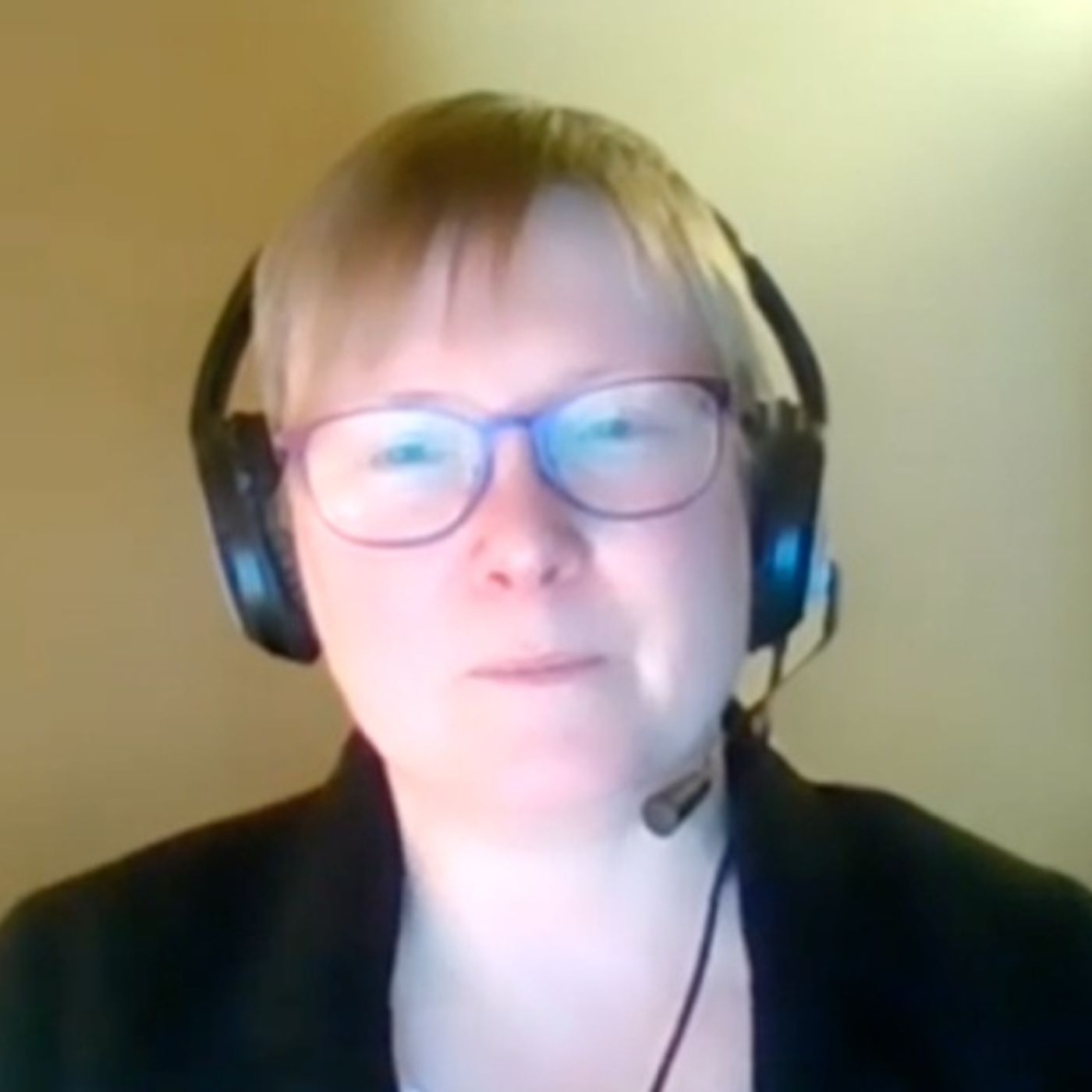
Rare Disease DiscussionsGaucher Disease Research HighlightsDerralynn Hughes, MD, Professor of Experimental Haematology at the University College London provides an overview of the exciting new research presented at ASH 2020 focused on Gaucher disease.The CME is jointly provided by American Academy of CME, Inc. and CheckRare CE, Inc, and supported by an educational grant from Takeda Pharmaceuticals U.S.A., Inc.To earn a CME credit, go to https://checkrare.com/learning-center/courses/
2021-03-2415 min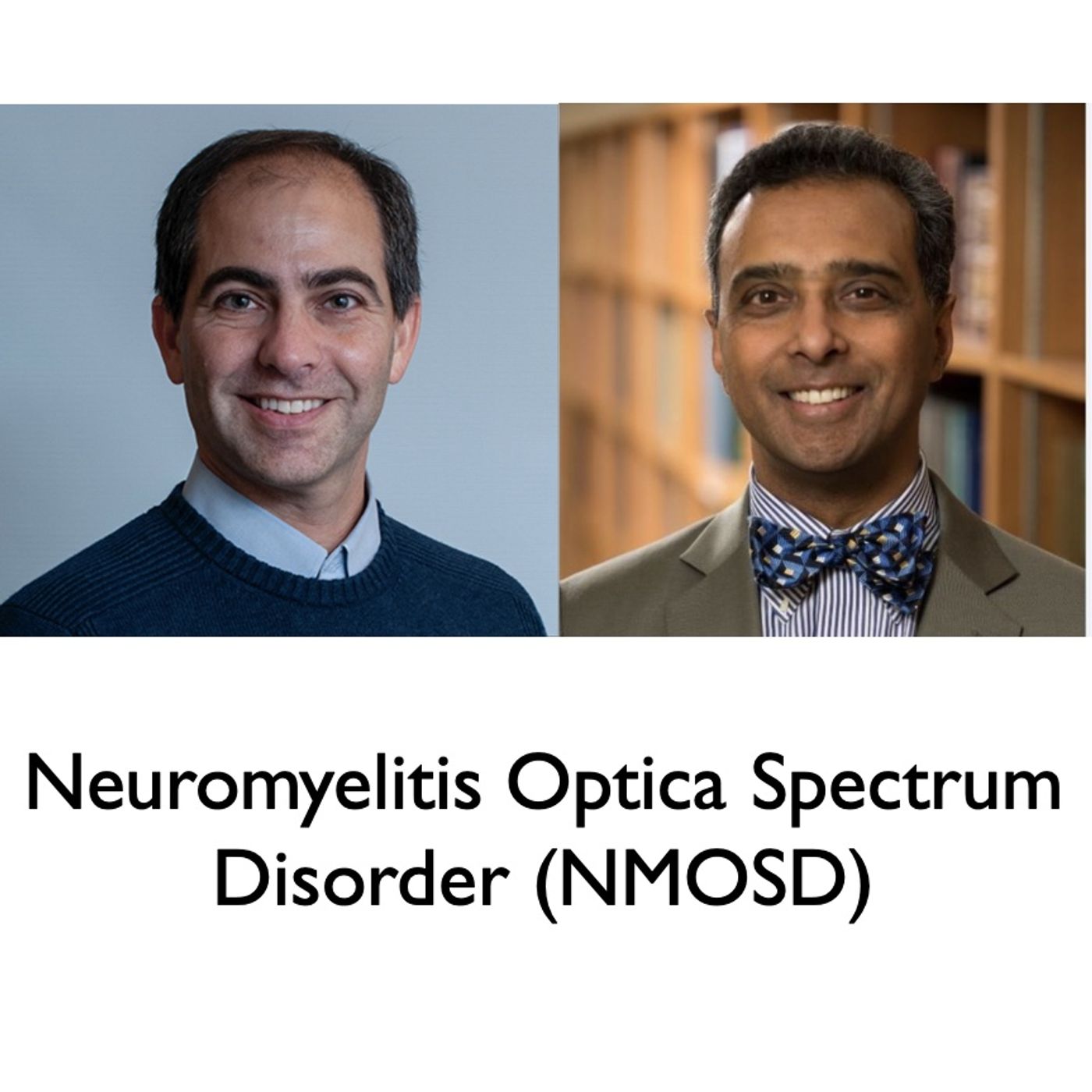
Rare Disease DiscussionsEye on Neuromyelitis Optica Spectrum Disorder (NMOSD)Neuromyelitis optica spectrum disorder (NMOSD) is a rare auto-immune that can often be confused with more common conditions, like multiple sclerosis. Ophthalmologist are often the first persons to see these patients but they may be unfamiliar with the symptoms of NMOSD and that can lead to delays in diagnosis.This CME module about suspecting and diagnosing managing patients with NMOSD during an ophthalmologic visit is hosted by Michael Levy, MD, PhD, Associate Neurologist at Massachusetts General Hospital and Prem Subramanian, MD, PhD, Professor of Ophthalmology at the University of Colorado Hospital. The CME is jointly provided...
2021-02-1427 min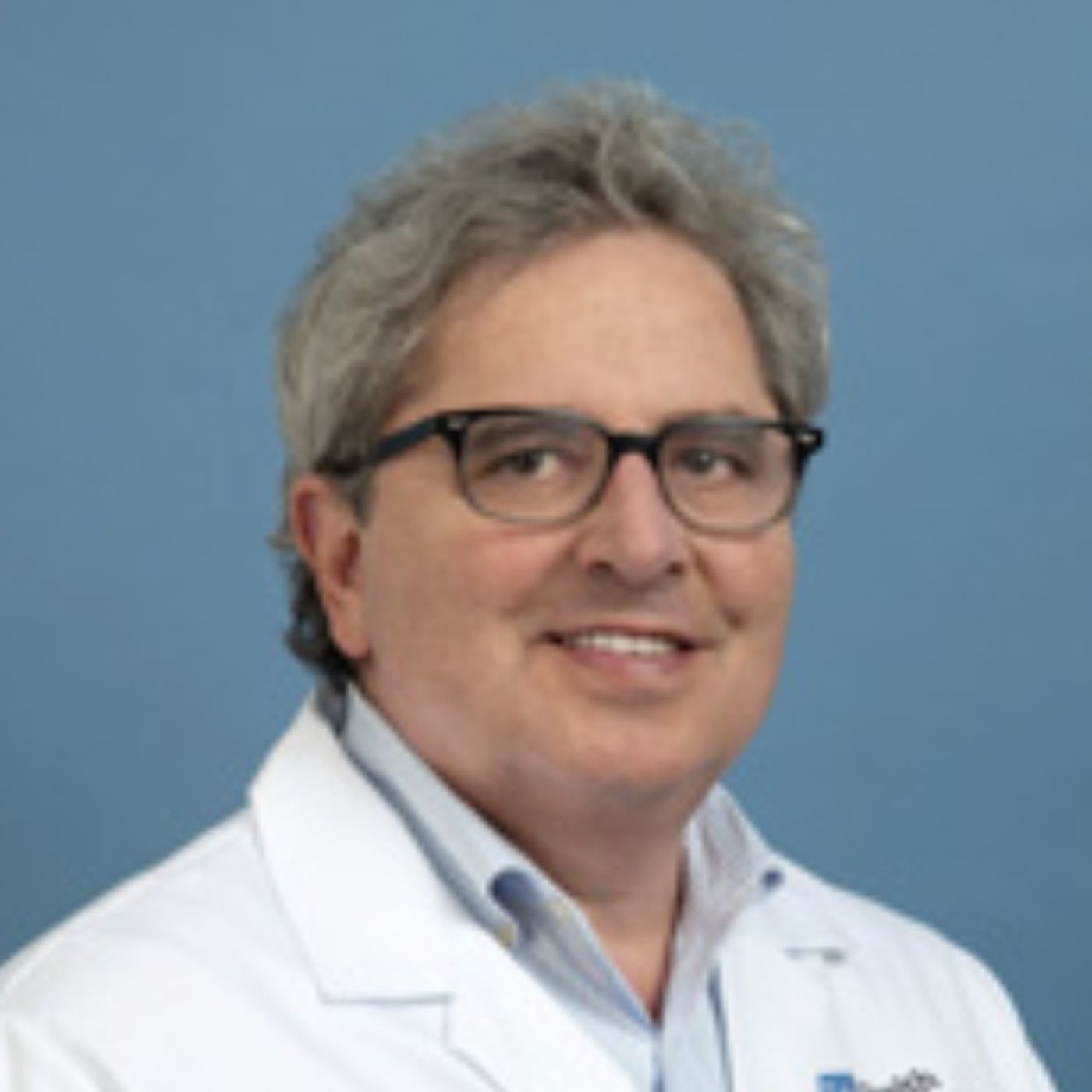
Rare Disease DiscussionsPAH Highlights from CHEST 2020Richard N Channick, MD, Professor of Medicine at David Geffen School of Medicine at UCLA provides an overview of the latest research presented at CHEST 2020 focused on pulmonary arterial hypertension (PAH). The CME is jointly provided by American Academy of CME, Inc. and CheckRare CE, Inc, and supported by an educational grant from Actelion Pharmaceuticals US, Inc., a Janssen Pharmaceutical Company of Johnson & Johnson.To earn a CME credit, go to https://checkrare.com/learning-center/courses/
2021-02-1419 min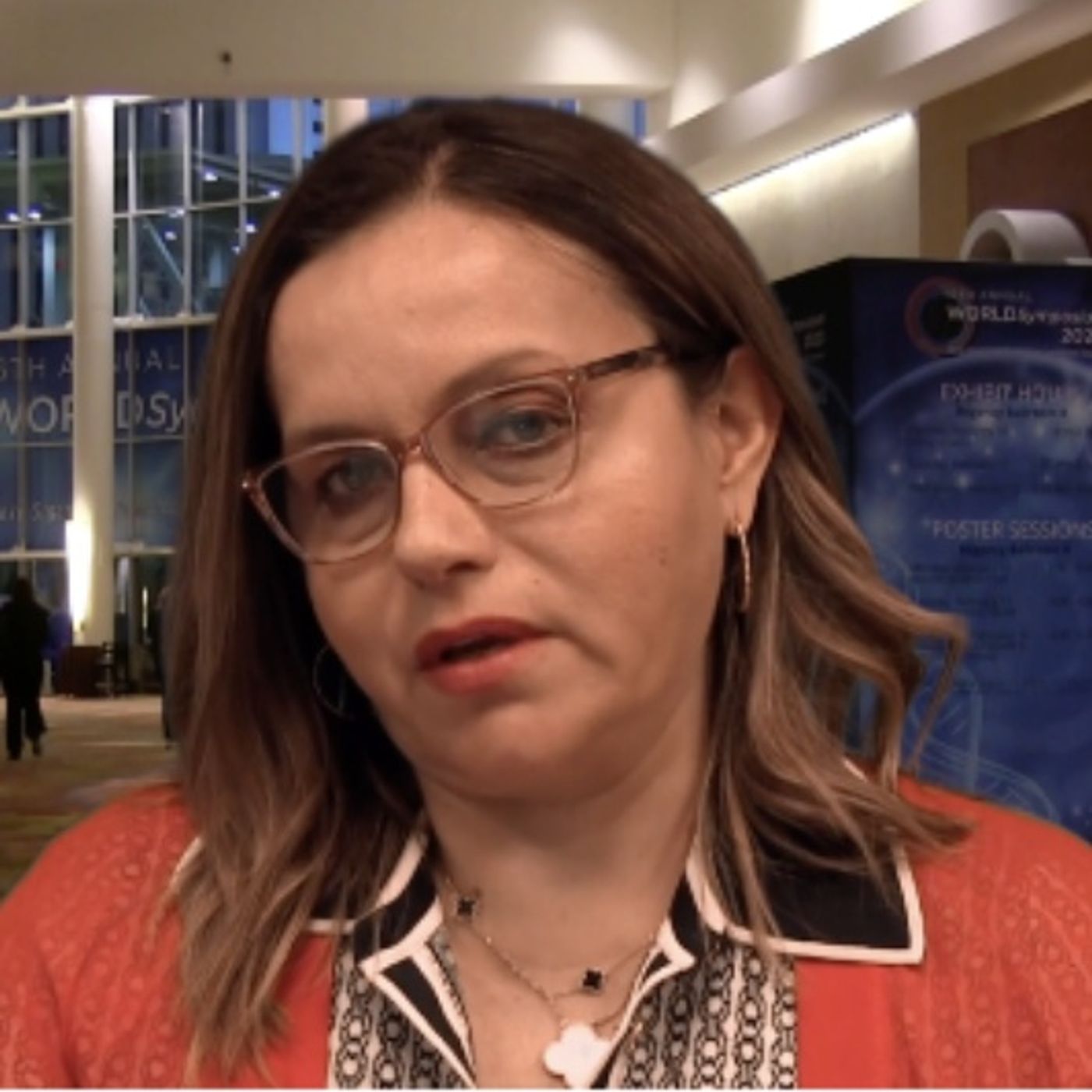
Rare Disease DiscussionsFabry Disease Research HighlightsOzlem Goker-Alpan, MD, Founder and President of the Lysosomal & Rare Disorders Research & Treatment Center, provides an overview of Fabry disease research highlights presented at WORLDSymposium. This CME activity is possible through an educational grant from Sanofi Genzyme. To obtain credit for this activity, please visit https://checkrare.com/learning/p-2020world-fabry-disease-highlights-from-worldsymposium-2020/
2021-01-2520 min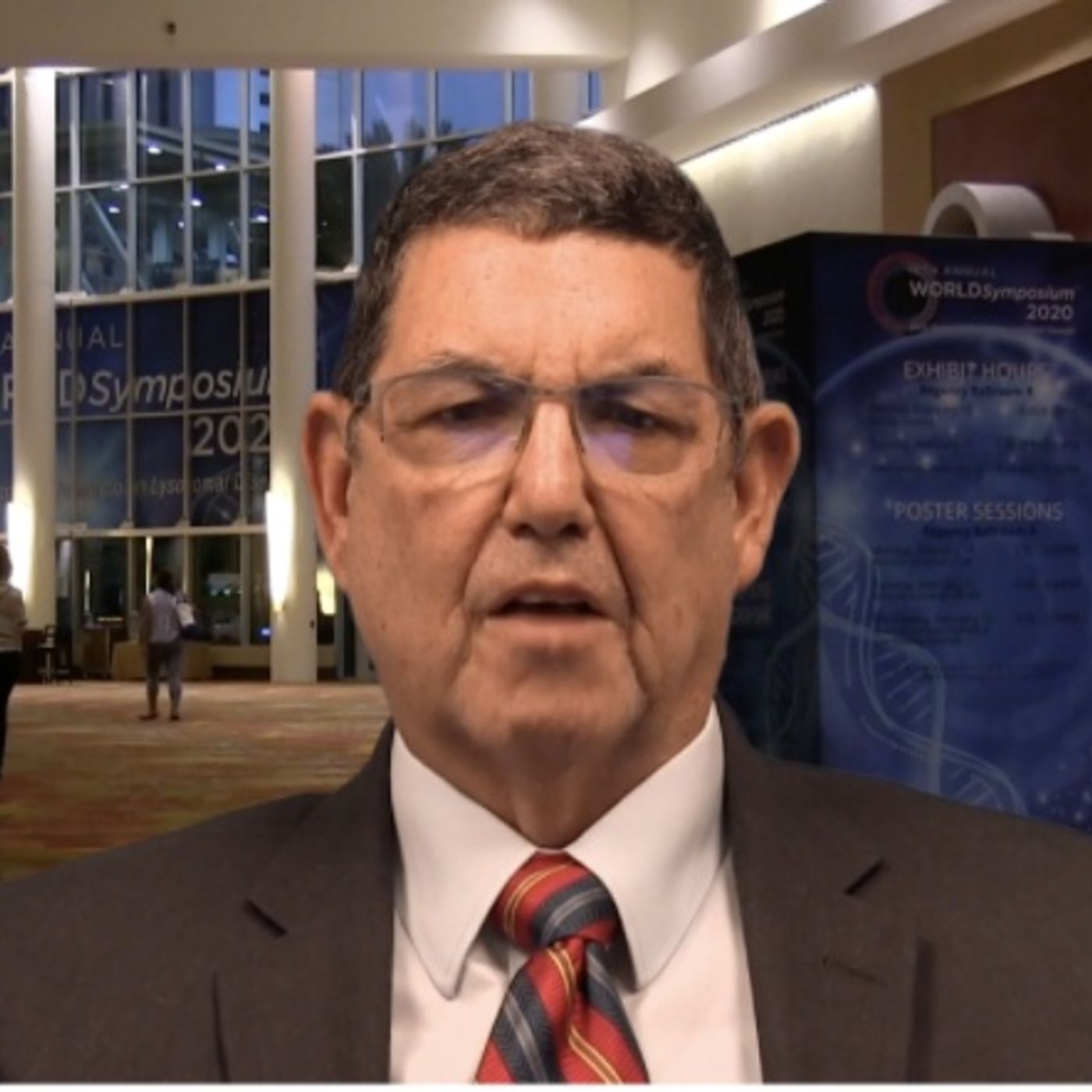
Rare Disease DiscussionsGaucher Disease Research HighlightsNeal Weinreb, MD, FACP, Regional Coordinator and Chair of the International Collaborative Gaucher Group provides an overview of Gaucher disease research highlights presented at WORLDSymposium. This CME activity is possible through an educational grant from Sanofi Genzyme. To obtain credit for this activity, please visit https://checkrare.com/learning/p-2020world-gaucher-disease-highlights-from-worldsymposium-2020/
2021-01-2524 min
Rare Disease DiscussionsMucopolysaccharidoses (MPSs) Research HighlightsBarbara K. Burton, MD from the Northwestern University Feinberg School of MedicineChicago, IL provides an overview of Mucopolysaccharidoses (MPSs) Highlights from WORLDSymposium.This CME activity is possible through an educational grant from Ultragenyx Pharmaceutical Inc To obtain credit for this activity, please visit https://checkrare.com/learning/p-2020world-mps-highlights-from-worldsymposium-2020/
2021-01-2519 min
Rare Disease DiscussionsWhen to Suspect ATTR AmyloidosisMorie A Gertz, MD, MACP, Professor of Medicine at the Mayo Clinic College of Medicine and Science in Rochester, Minnesota discusses signs and symptoms that are suspicious of ATTR amyloidosis. This CME activity is possible through an educational grants from Akcea Therapeutics and Alnylam Pharmaceuticals. To obtain credit for this activity, please visit https://checkrare.com/learning/p-managing-attr-module1-suspecting-attr-amyloidosis/
2021-01-2518 min
Rare Disease DiscussionsDiagnosing ATTR AmyloidosisMorie A Gertz, MD, MACP, Professor of Medicine at the Mayo Clinic College of Medicine and Science in Rochester, Minnesota discusses best practices to diagnose ATTR amyloidosis. This CME activity is possible through an educational grants from Akcea Therapeutics and Alnylam Pharmaceuticals. To obtain credit for this activity, please visit https://checkrare.com/learning/p-managing-attr-module2-diagnosing-attr-amyloidosis/
2021-01-2515 min
Rare Disease DiscussionsSpinal Muscular Atrophy and Genetic CounselingNancy L. Kuntz, MD, FAAN, Professor of Pediatrics and Neurology at Northwestern University Feinberg School of Medicine provides an overview of the importance of genetic counseling for spinal muscular atrophy (SMA). This CME activity is possible through an educational grant from AveXis. To obtain credit for this activity, please visit https://checkrare.com/learning/p-spinal-muscular-atrophy-module4-genetic-counseling-sma/
2021-01-2512 min
Rare Disease DiscussionsSpinal Muscular Atrophy and Newborn ScreeningNancy L. Kuntz, MD, FAAN, Professor of Pediatrics and Neurology at Northwestern University Feinberg School of Medicine provides an overview of the importance of newborn screening for spinal muscular atrophy (SMA). This CME activity is possible through an educational grant from AveXis. To obtain credit for this activity, please visit https://checkrare.com/learning/p-spinal-muscular-atrophy-module3-newborn-screening-sma/
2021-01-2512 min
Rare Disease DiscussionsTreating Spinal Muscular AtrophyNancy L. Kuntz, MD, FAAN, Professor of Pediatrics and Neurology at Northwestern University Feinberg School of Medicine provides an overview of best practices to treat spinal muscular atrophy (SMA). This CME activity is possible through an educational grant from AveXis. To obtain credit for this activity, please visit https://checkrare.com/learning/p-spinal-muscular-atrophy-module2-managing-sma/
2021-01-2514 min
Rare Disease DiscussionsDiagnosing Spinal Muscular AtrophyNancy L. Kuntz, MD, FAAN, Professor of Pediatrics and Neurology at Northwestern University Feinberg School of Medicine provides an overview of best practices to diagnose spinal muscular atrophy (SMA). This CME activity is possible through an educational grant from AveXis. To obtain credit for this activity, please visit https://checkrare.com/learning/p-spinal-muscular-atrophy-module1-diagnosing-sma/
2021-01-2514 min
Rare Disease DiscussionsNETS Research HighlightsEdward M Wolin, MD, Professor of Medicine from the Icahn School of Medicine at Mount Sinai provides an overview of neuroendocrine tumors research highlights presented at ENDO 2020. This CME activity is possible through an educational grant from Ipsen BioPharmaceuticals, Inc. To obtain credit for this activity, please visit https://checkrare.com/learning/p-endo2020-neuroendocrine-tumors-nets-abstract-highlights/
2021-01-2512 min
Rare Disease DiscussionsRolling Submission for Cilta-cel to Treat Relapsed/Refractory Multiple Myeloma
2021-01-1705 min
Rare Disease DiscussionsClinical Data Shows Promise for SCID TreatmentJudy Shizuru, MD, Blood and Marrow Transplant Specialist, Stanford University School of Medicine, discusses clinical data from an ongoing phase 1 trial of JSP191 in patients with severe combined immune deficiency (SCID).SCID is a group of inherited immune system disorders characterized by abnormalities with responses of both T cells and B cells. Common symptoms include an increased susceptibility to infections including ear infections; pneumonia or bronchitis; oral thrush; and diarrhea.As Dr. Shizuru explains, JSP191 is a humanized monoclonal antibody in clinical development as a conditioning agent that clears hematopoietic stem cells from bone marrow....
2021-01-1105 min
Rare Disease DiscussionsGene Therapy Showing Promise in Treating XLRPMichel Michaelides, MD, of UCL Institute of Ophthalmology; Moorfields Eye Hospital provides an overview of X-linked retinitis pigmentosa (XLRP), including its symptoms, common treatments, as well as a summary of the latest interim data from the MGT009 trial.
2020-10-3011 min
Rare Disease DiscussionsNarcolepsy Highlights from AAN 2020Maurice Ohayon, MD, PhD, Professor of Psychiatry and Behavioral Sciences atStanford University summarizes key research on narcolepsy presented at the American Academy of Neurology (AAN) 2020 annual meeting.To obtain CME credit, go to https://checkrare.com/learning/p-aan2020-narcolepsy-abstract-highlights-from-aan-2020/
2020-10-2620 min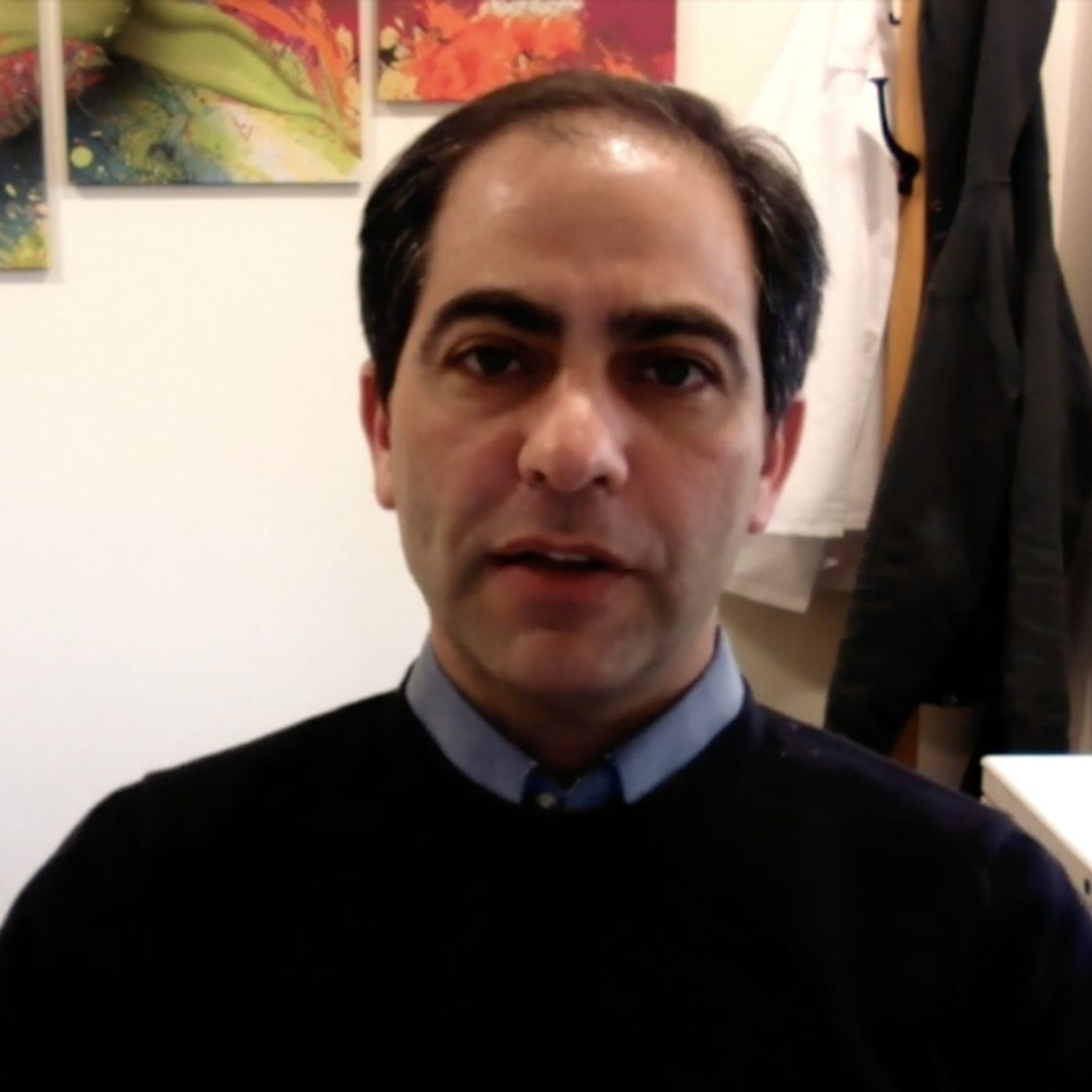
Rare Disease DiscussionsNMOSD Highlights from AAN 2020Michael Levy, MD, PhD, Associate Professor, Harvard Medical School summarizes key research on neuromyelitis optica spectrum disorder (NMOSD) presented at the American Academy of Neurology (AAN) 2020 annual meeting. To obtain CME credit, go to https://checkrare.com/learning/p-aan2020-nmosd-abstract-highlights-from-aan-2020/
2020-10-2620 min
Rare Disease DiscussionsNewborn Screening and MPS IPaul Orchard, MD from the University of Minnesota Medical School discusses Mucopolysaccharidosis I (MPS I) in this four part learning program.MPS I meets all the criteria to be part of newborn screening panel, and is included in the Federal Government’s Recommended Uniform Screening Panel (RUSP). As the number of states that include MPS I in the panel increases, clinicians need to be recognize the value newborn screening can bring to persons with these conditions. In this module, our faculty educator will explain the value of having MPS I as part of a newborn screening program.
2020-09-1110 min
Rare Disease DiscussionsMucopolysaccharidosis I (MPS I) and Genetic CounselingMucopolysaccharidosis I (MPS I) follows an autosomal recessive inheritance pattern. Therefore, diagnosing a person with this disease means that their close relatives should also be tested to see if they have the disease or are carriers of the disease. Both scenarios can be useful to plan the person’s future as an individual and as a potential parent. In this module, our faculty educator will explore genetic counseling for MPS I.
2020-09-1012 min
Rare Disease DiscussionsTreating Mucopolysaccharidosis I (MPS I)Paul Orchard, MD from the University of Minnesota Medical School discusses Mucopolysaccharidosis I (MPS I) in this four-part CME/CE series.Without treatment, the prognosis for individuals with Mucopolysaccharidosis I (MPS I), especially the more severe form of the disease, is discouraging. Early access to treatment is also important in order to reduce disease damage and progression. In this module, our faculty educator will explore strategies for treating MPS I.
2020-09-1016 min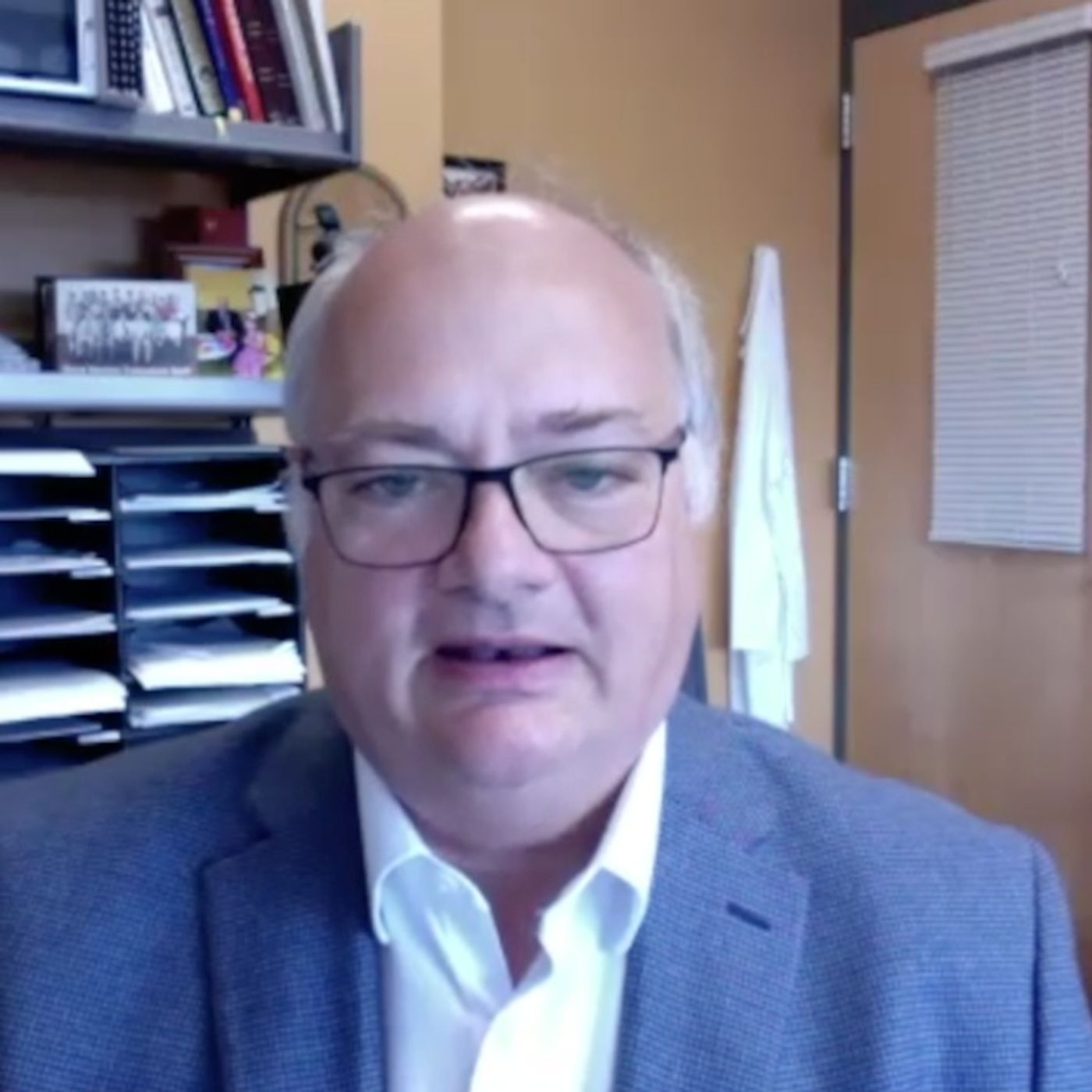
Rare Disease DiscussionsDiagnosing Mucopolysaccharidosis I (MPS I)Paul Orchard, MD from the University of Minnesota Medical School discusses early symptoms for Mucopolysaccharidosis I (MPS I), especially in those with the attenuated form of the disease,. Since this progressive disease has a treatment that can slow progression, it is imperative that clinicians recognize symptoms early so a correct diagnosis can be made. In this module, our faculty educator will explore making a proper diagnosis of MPS I.
2020-09-1011 min
Rare Disease DiscussionsMucopolysaccharidosis I (MPS I) and Genetic CounselingPaul Orchard, MD from the University of Minnesota Medical School provides an overview of Mucopolysaccharidosis I (MPS I). MPS I follows an autosomal recessive inheritance pattern. Therefore, diagnosing a person with this disease means that their close relatives should also be tested to see if they have the disease or are carriers of the disease. Both scenarios can be useful to plan the person’s future as an individual and as a potential parent. In this module, our faculty educator will explore genetic counseling for MPS I.
2020-09-1012 min
Rare Disease DiscussionsTumor-induced Osteomalacia (TIO)Peter Tebben, MD, of the Department of Pediatric and Adolescent Medicine, and Assistant Professor of Medicine at the Mayo Clinic in Rochester, MN provides an overview of tumor-induced osteomalacia (TIO).
2020-07-2421 min
Rare Disease DiscussionsNew Study to Treat Propionic Acidemia and Methylmalonic AcidemiaRecently, the US Food and Drug Administration (FDA) provided clearance to proceed with a Phase 2 clinical trial assessing HST5040 to treat children with propionic acidemia and methylmalonic acidemia, two rare inborn error of metabolism conditions that currently have limited treatment options. We talked with one of the principal investigators of the study, Marshall Summar, MD, Division Chief, Genetics and Metabolism and Director of the Rare Disease Institute at Children’s National Hospital.
2020-07-1602 min
Rare Disease DiscussionsCheckRare: Diagnosing Gaucher Disease Before ERTCyndi Frank, of the Gaucher Community Alliance explains her long diagnostic journey.
2020-05-0905 min